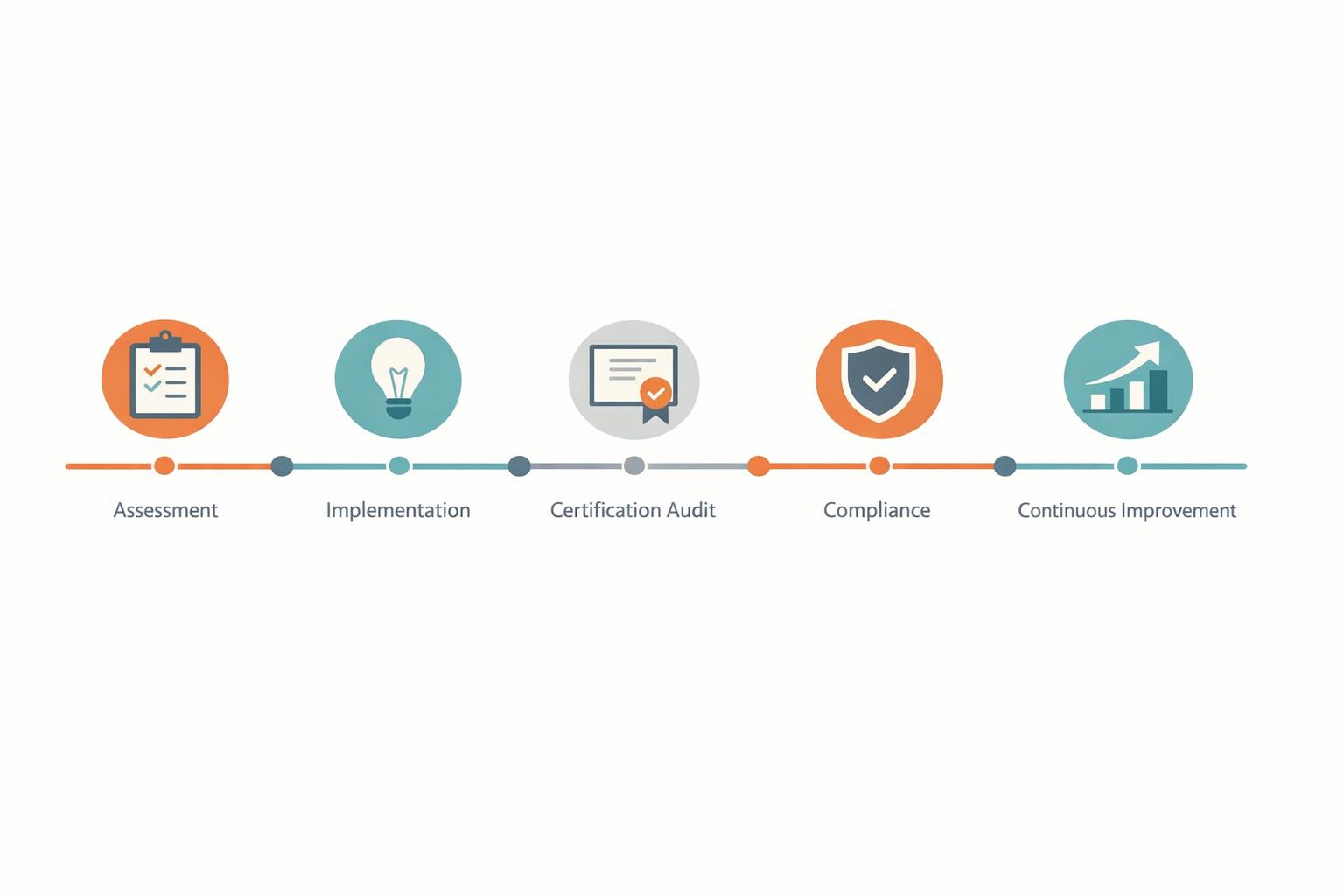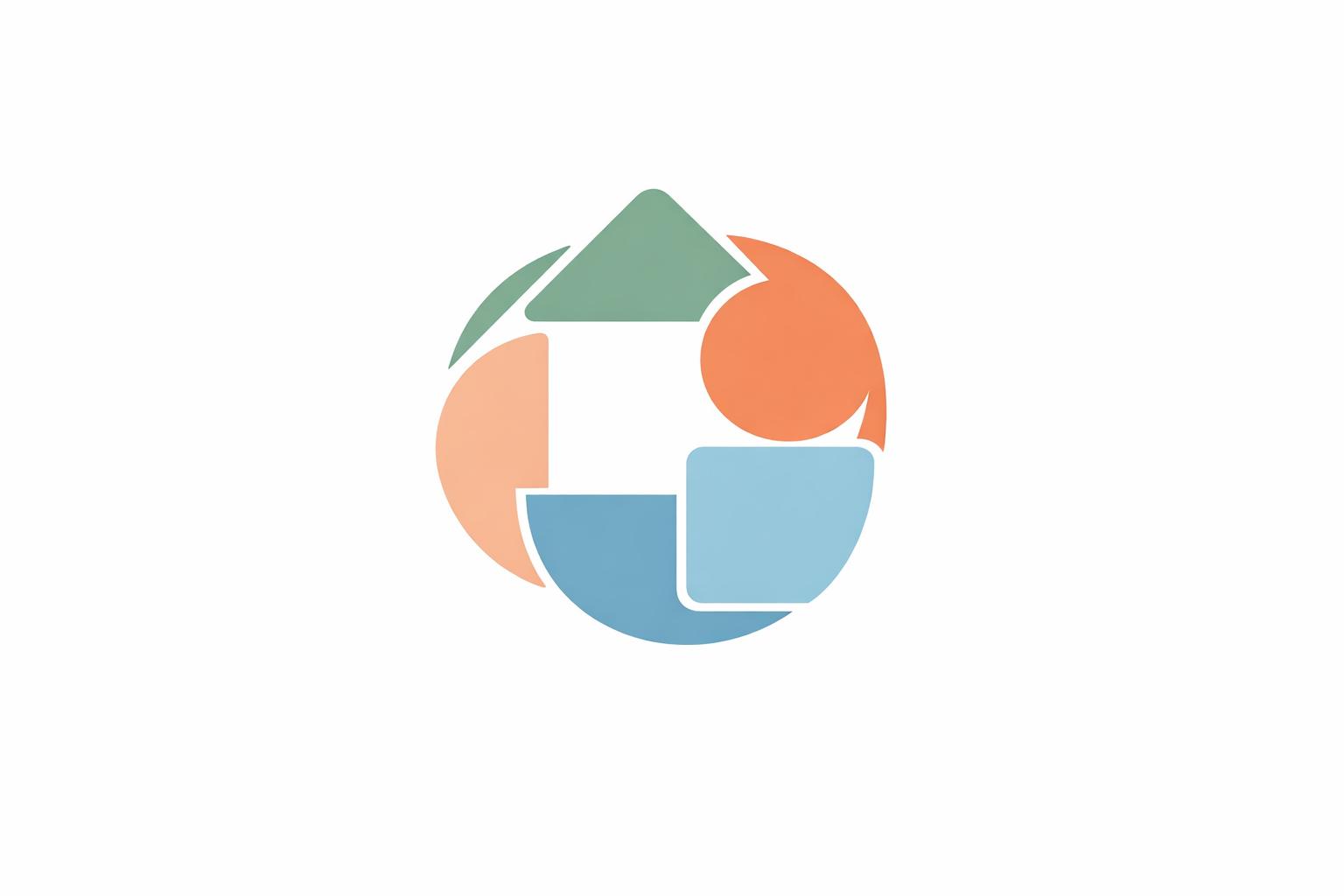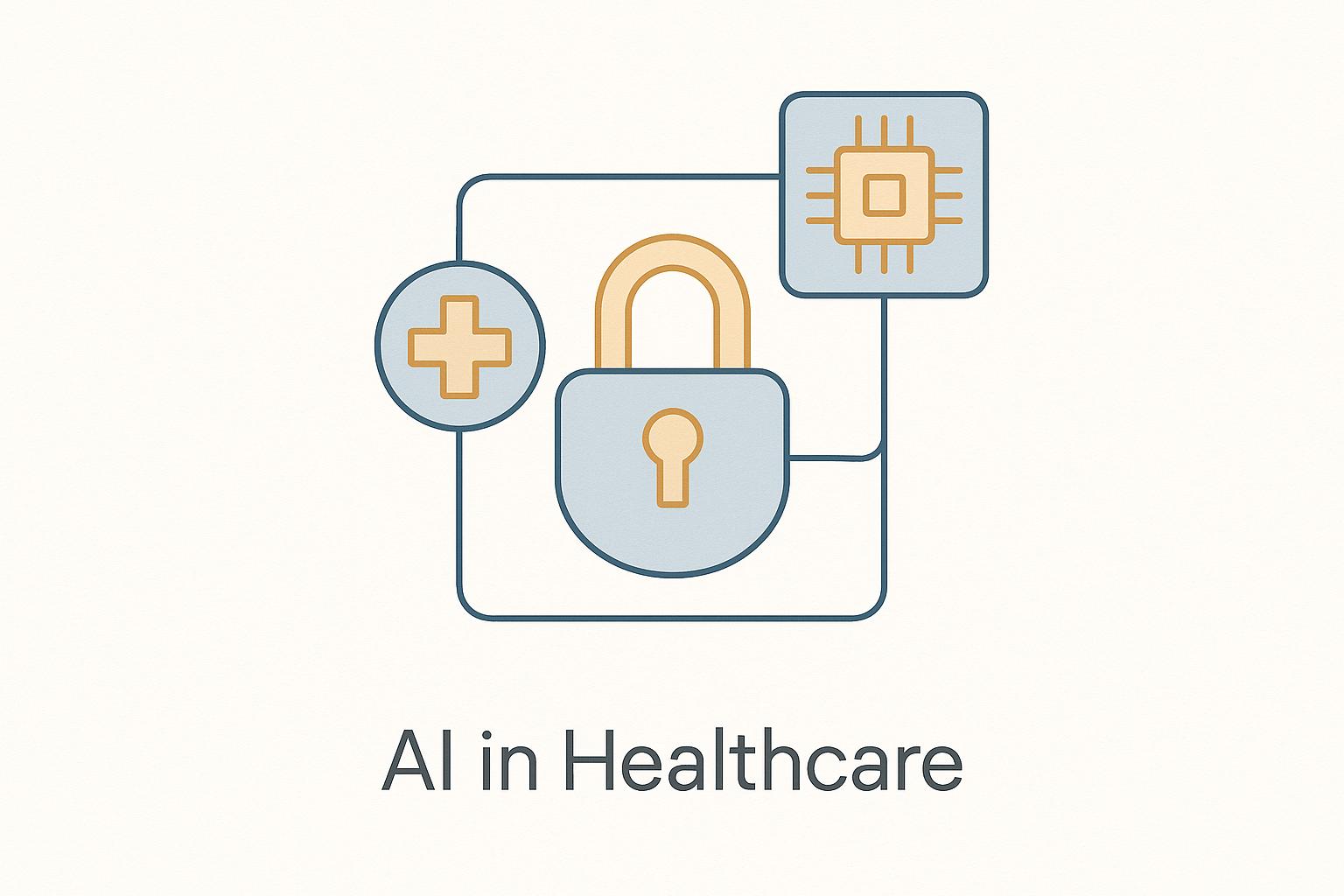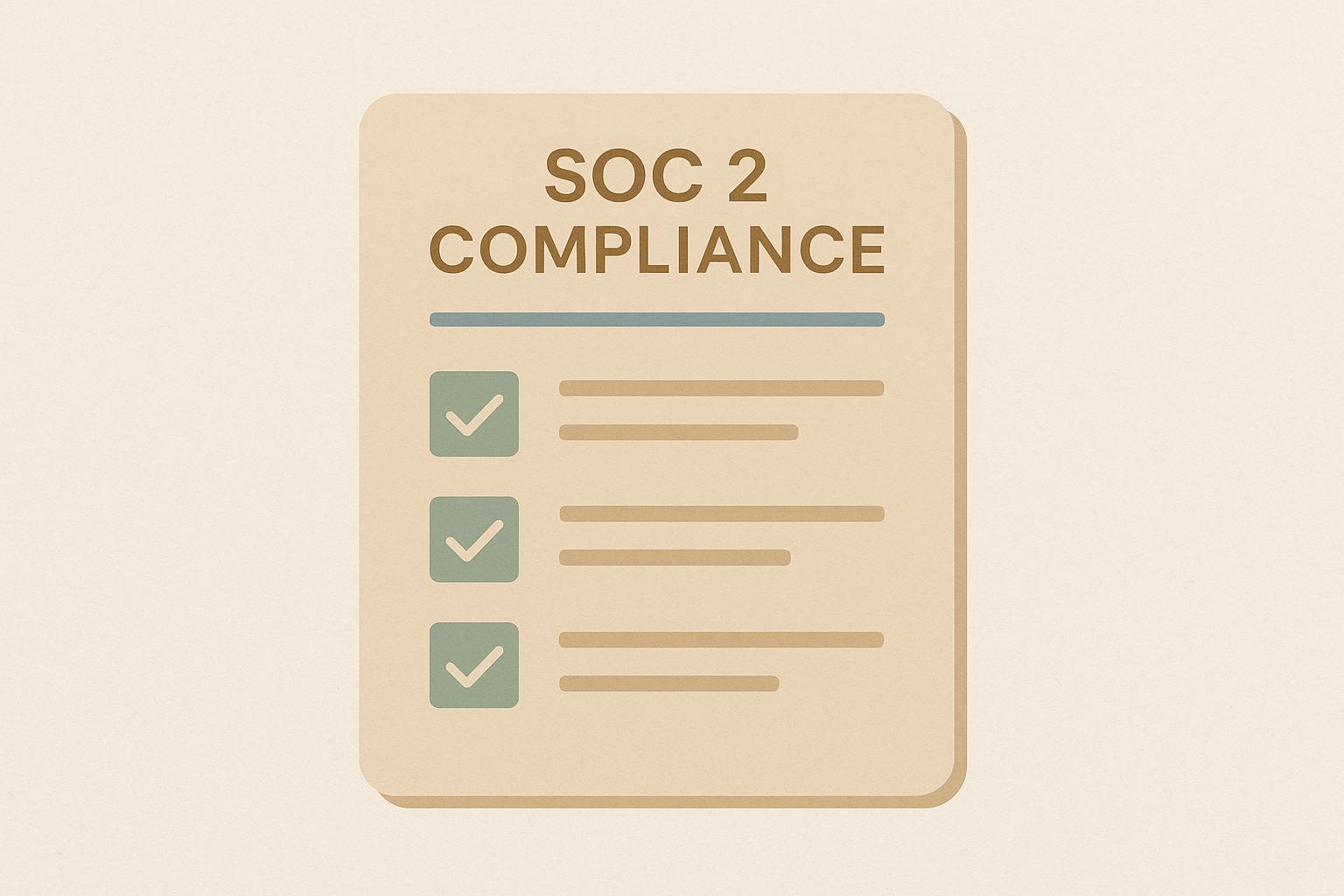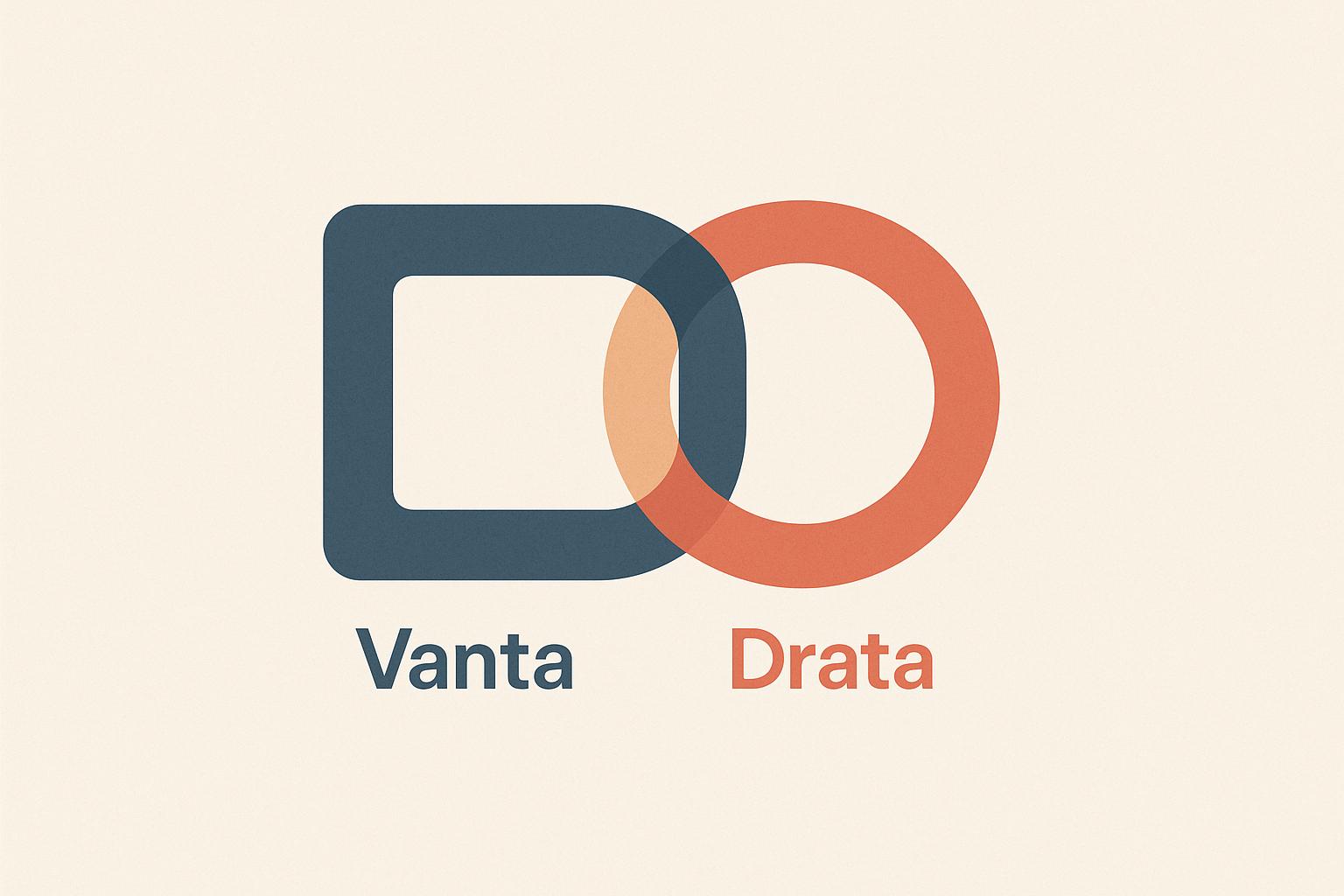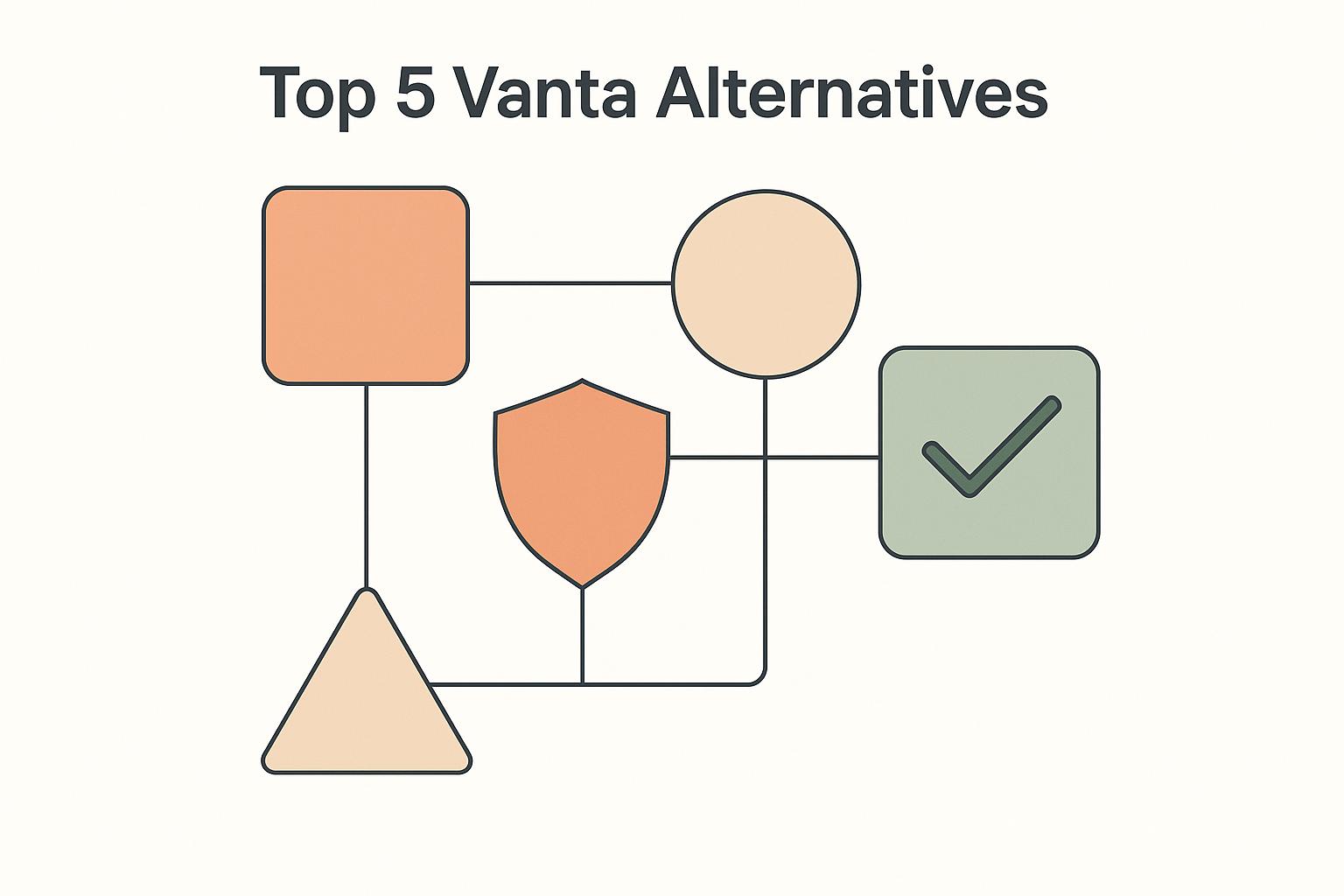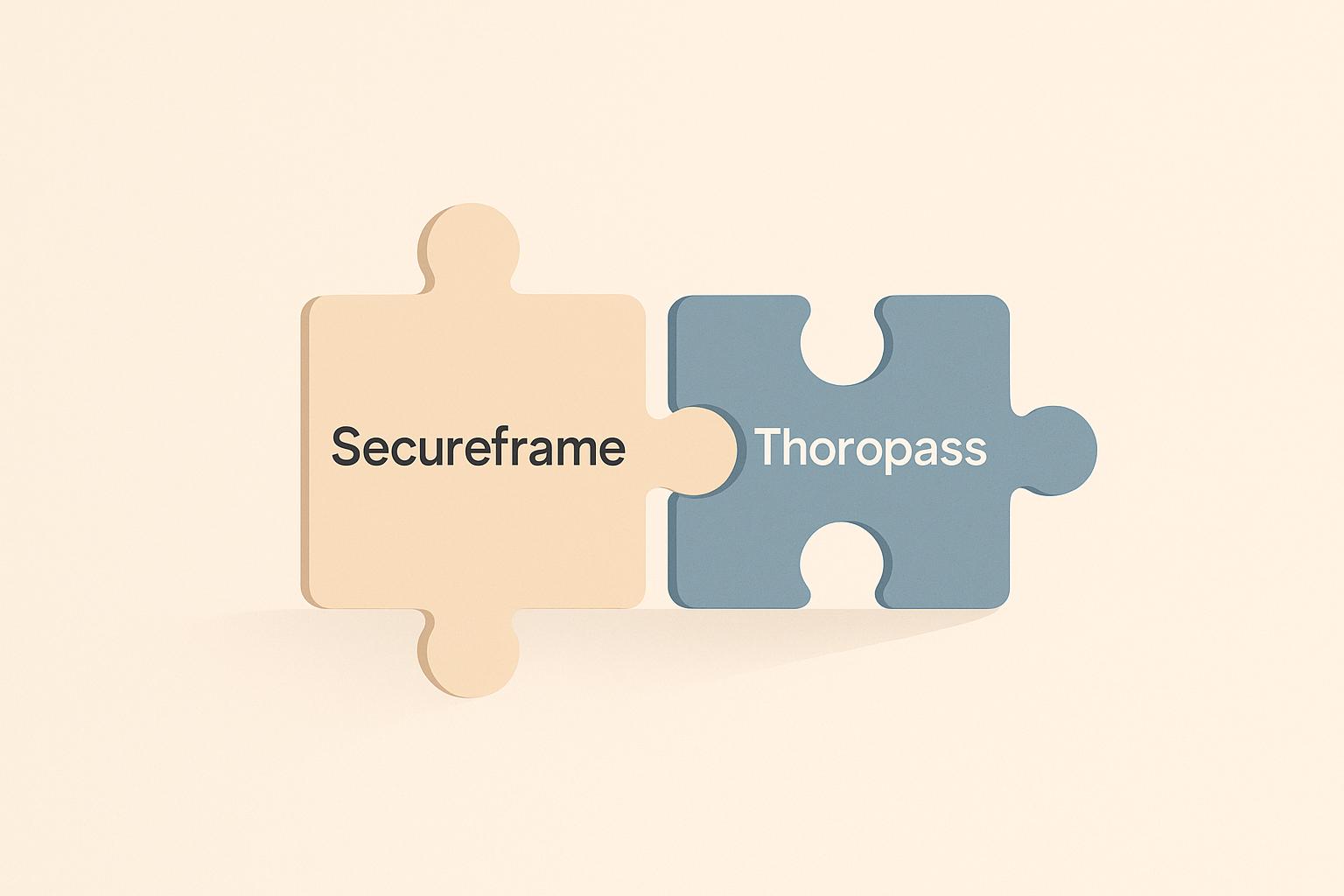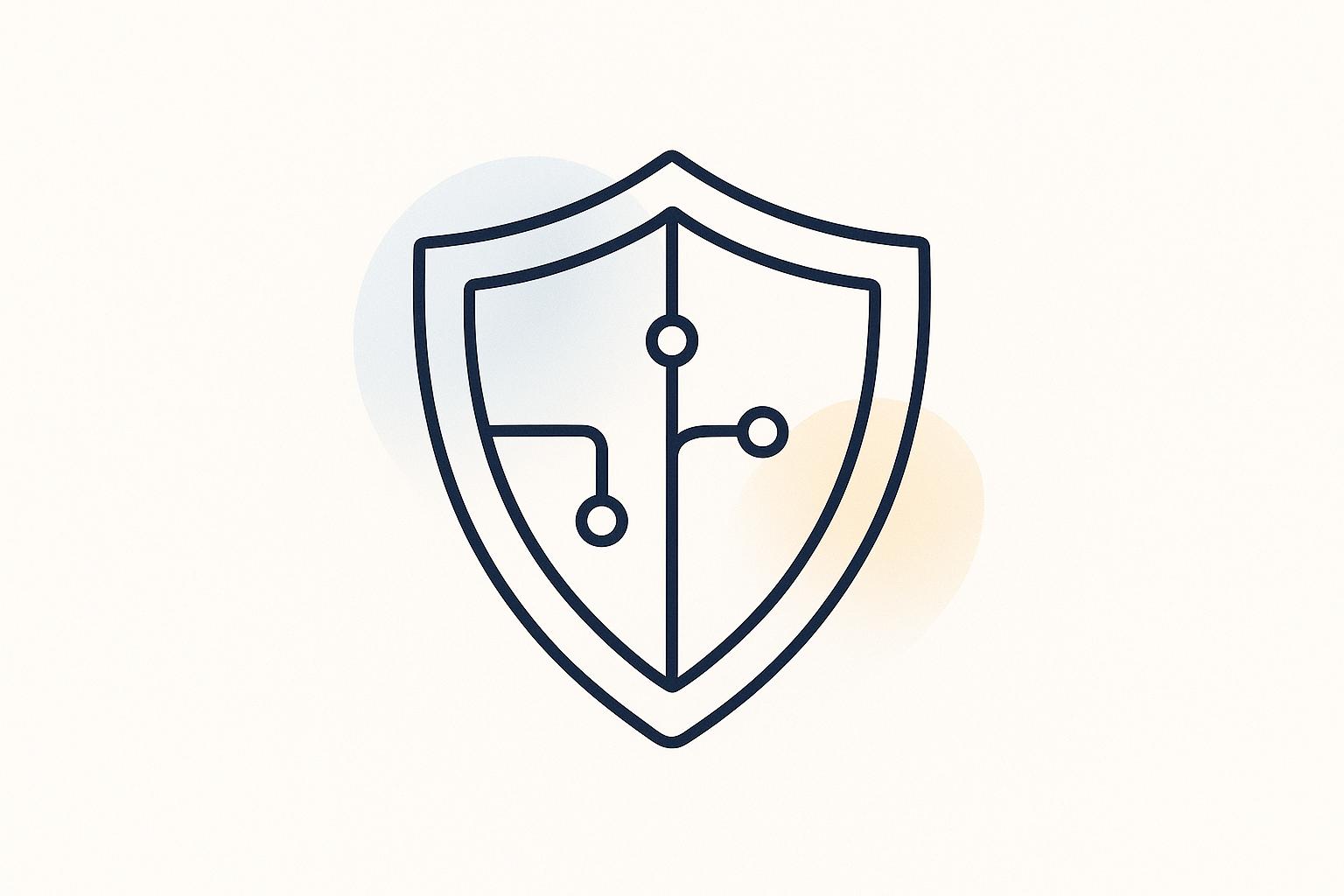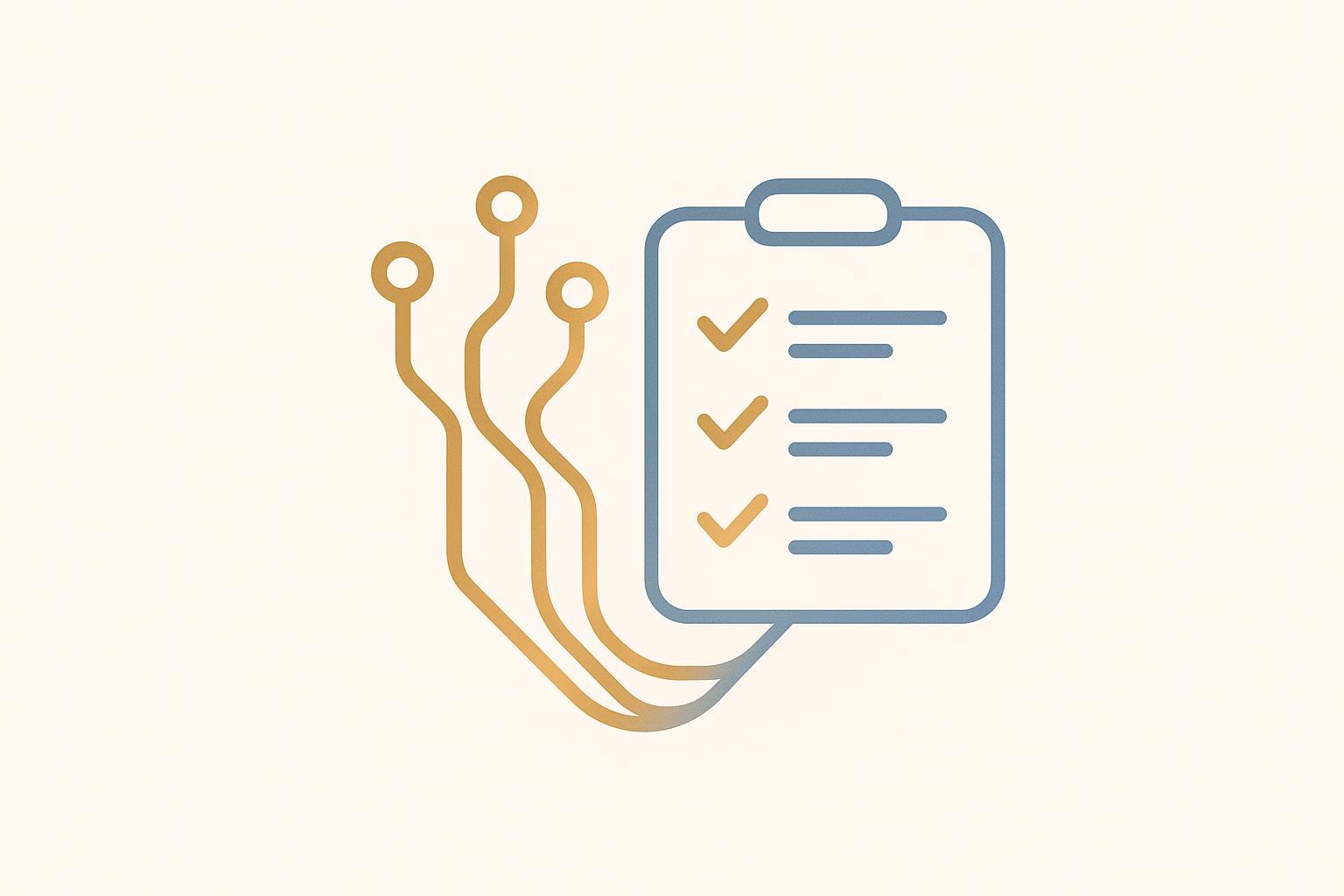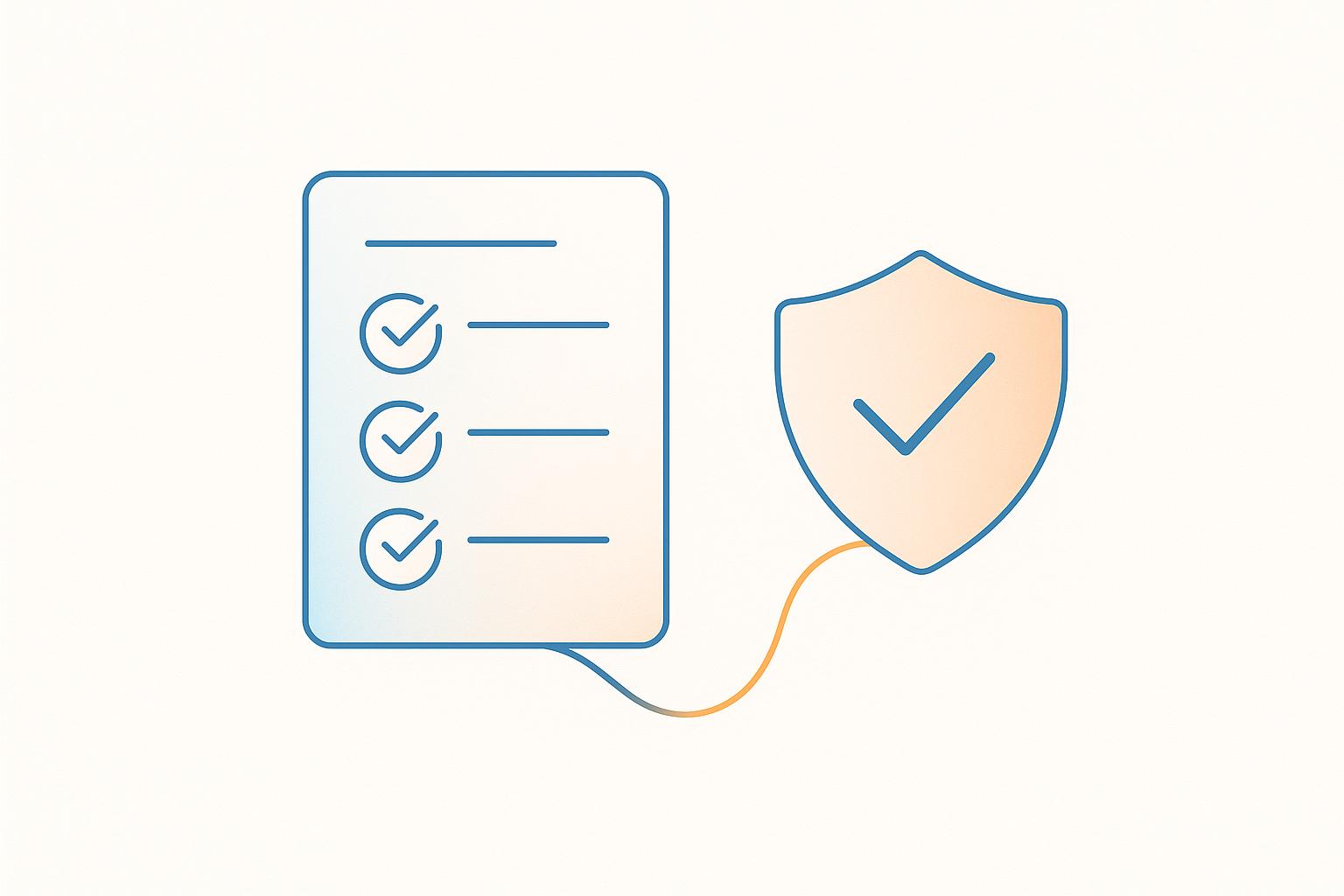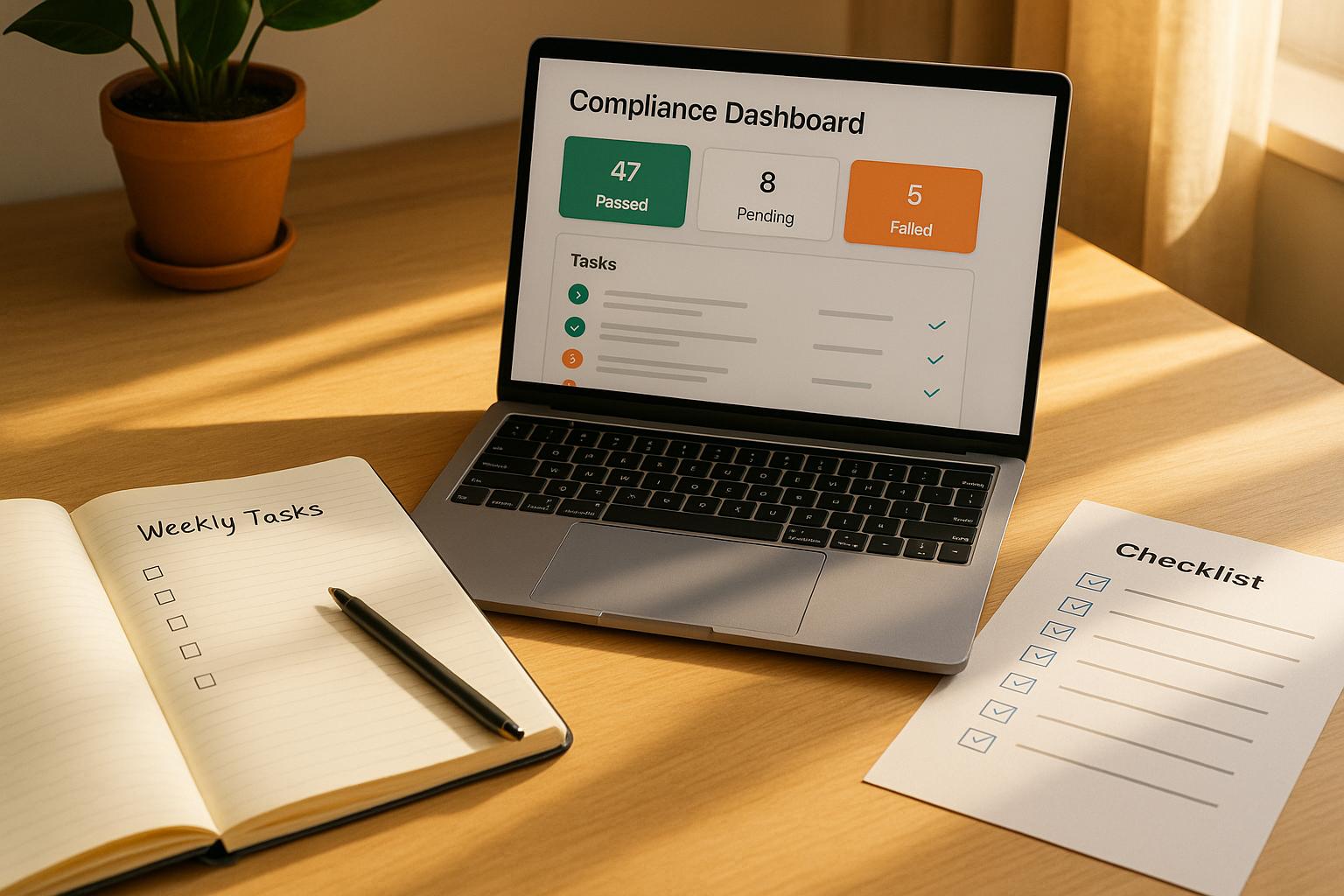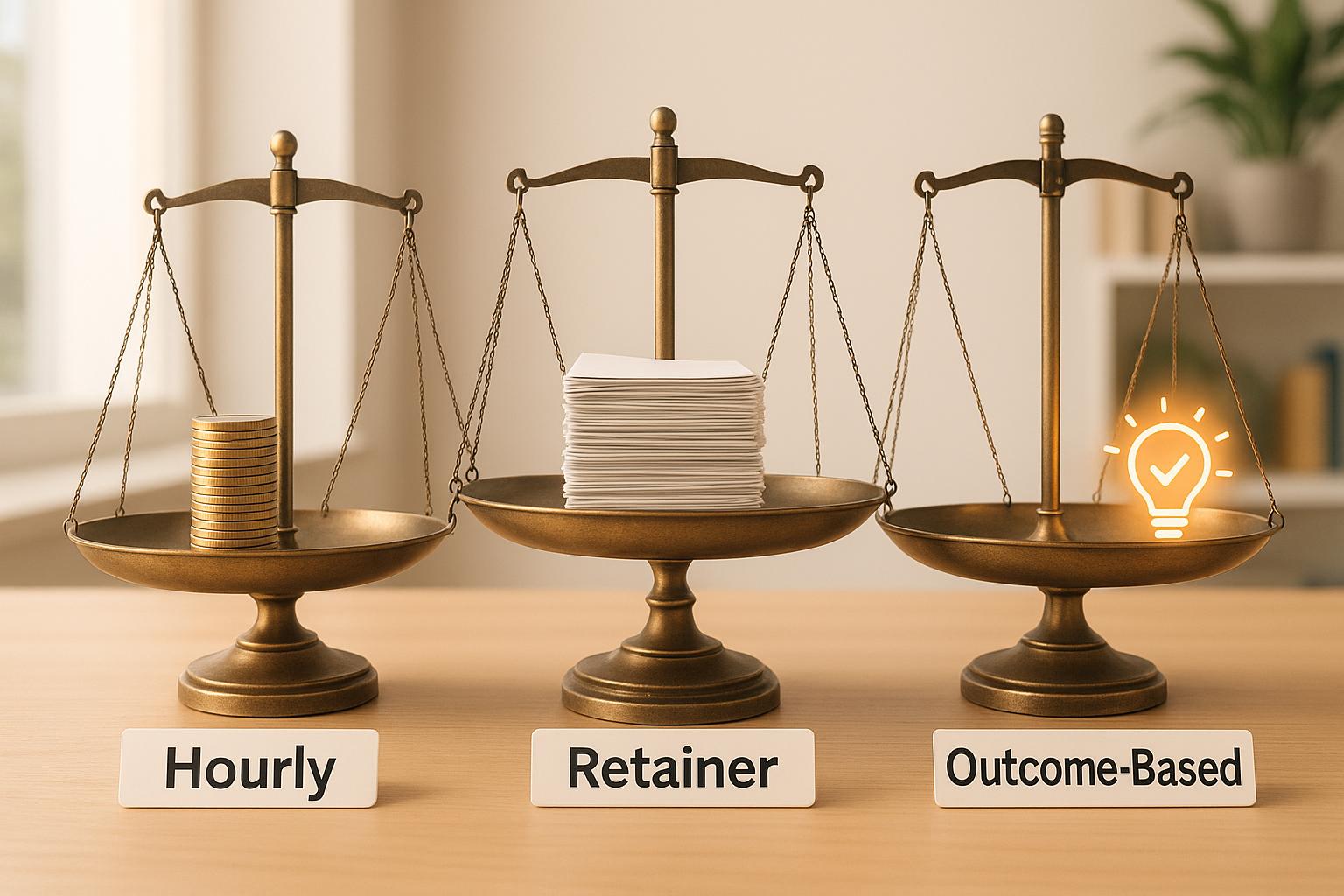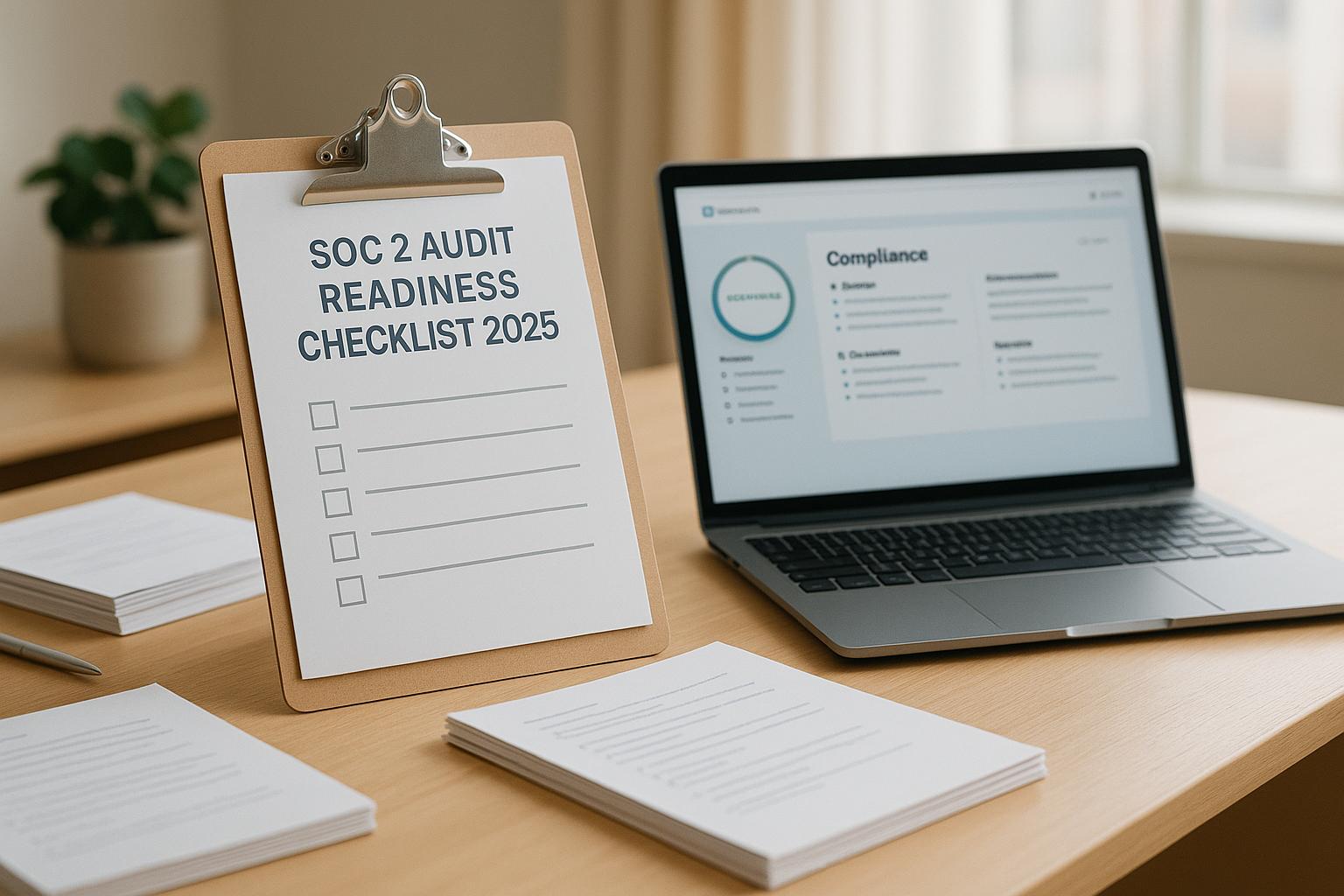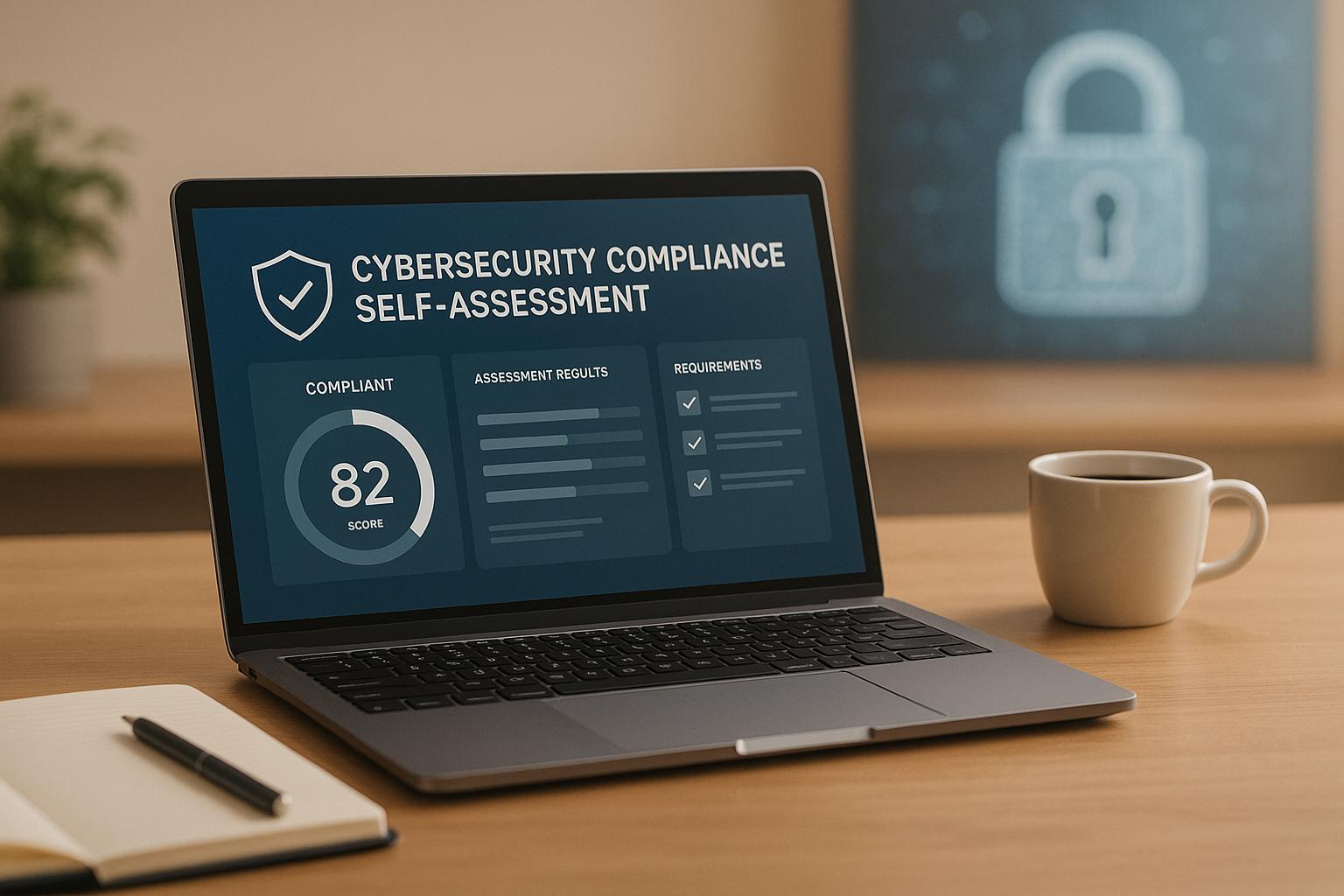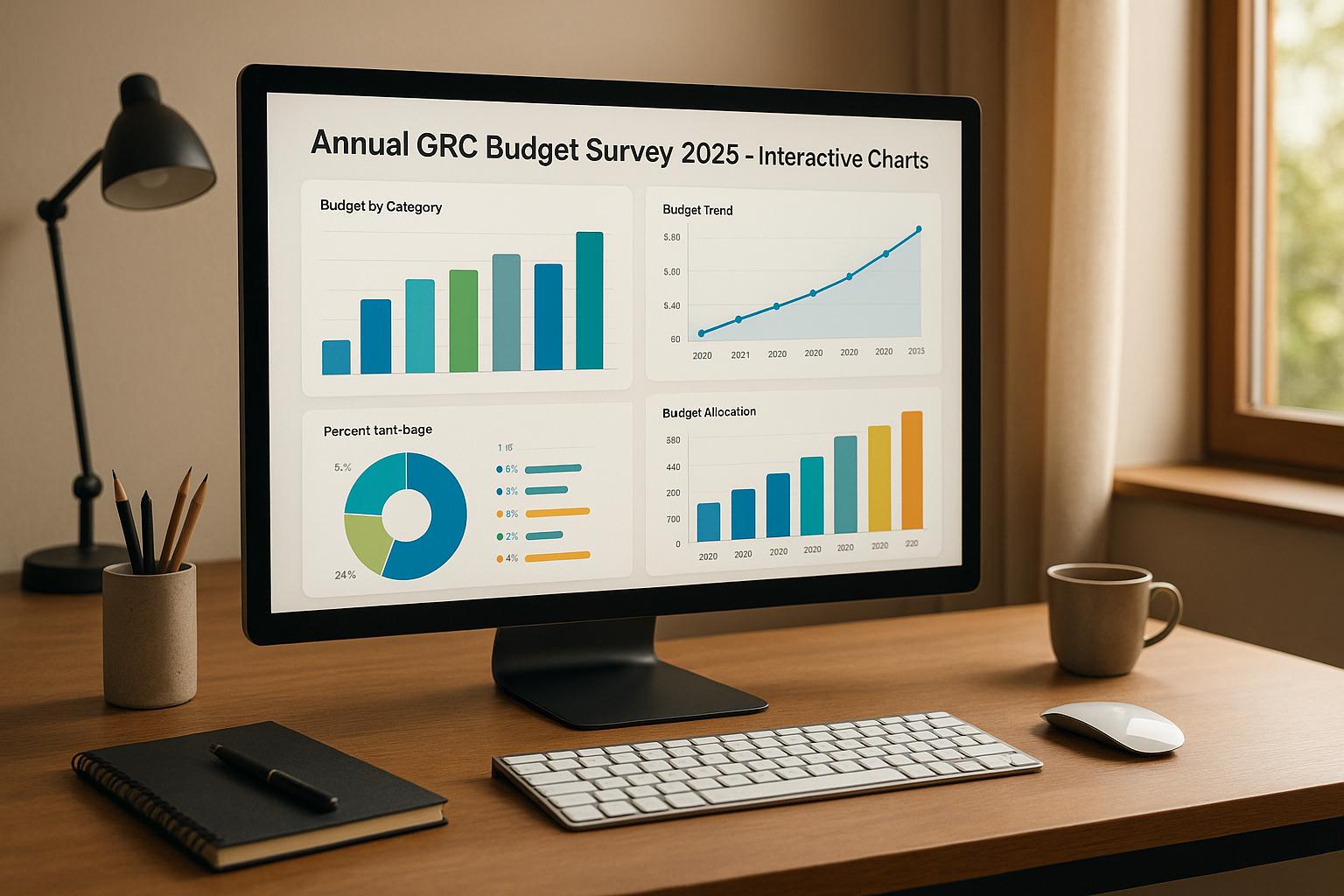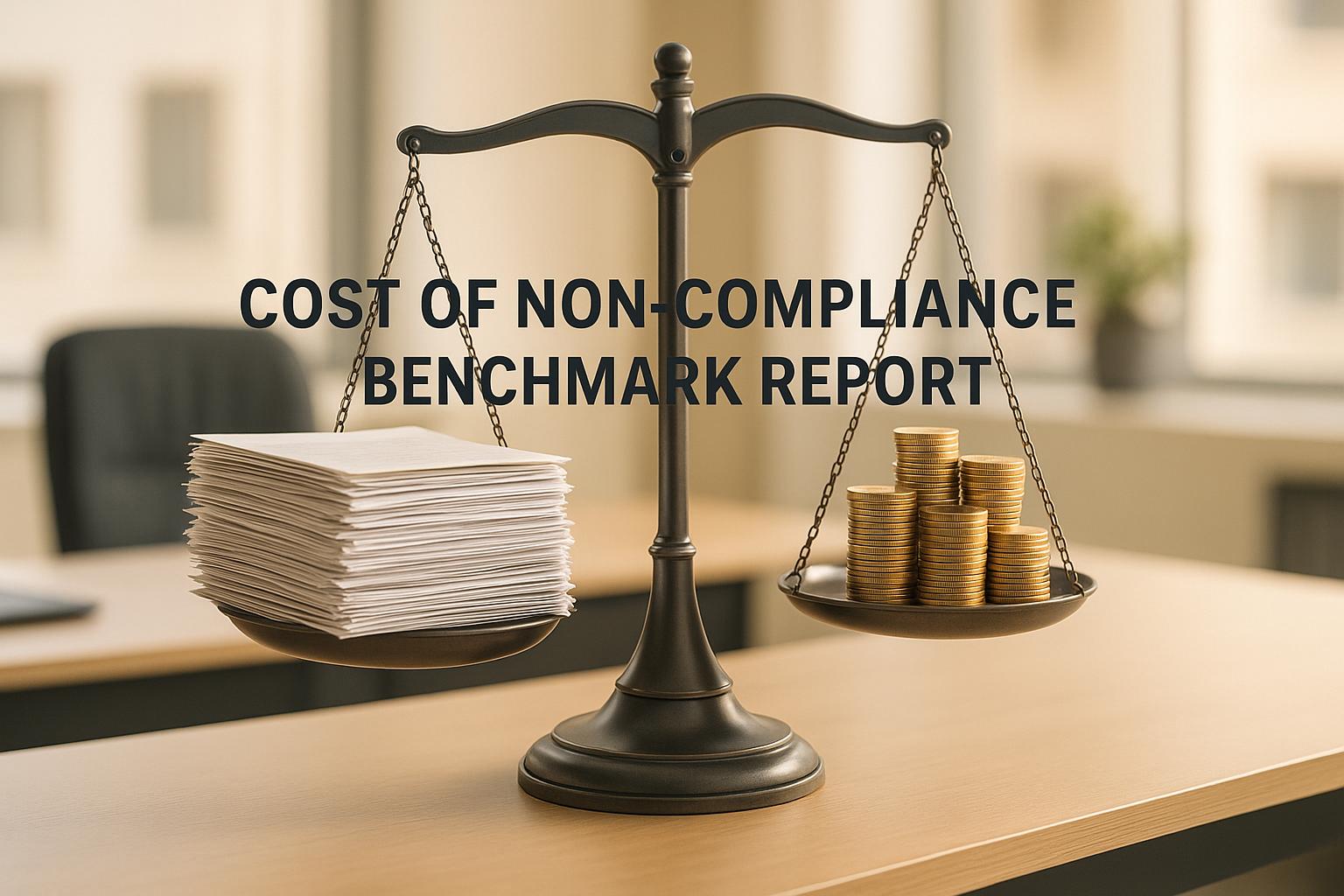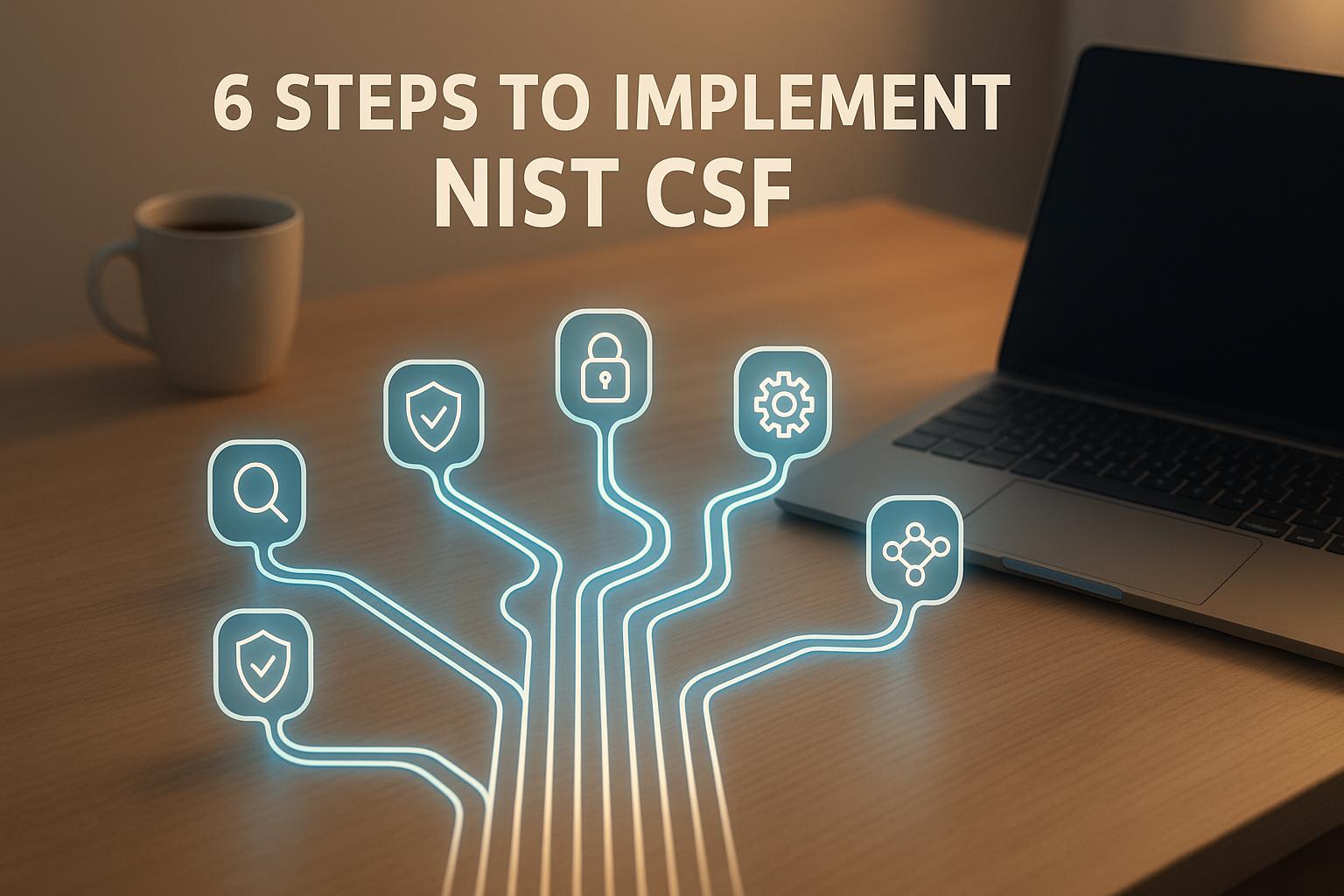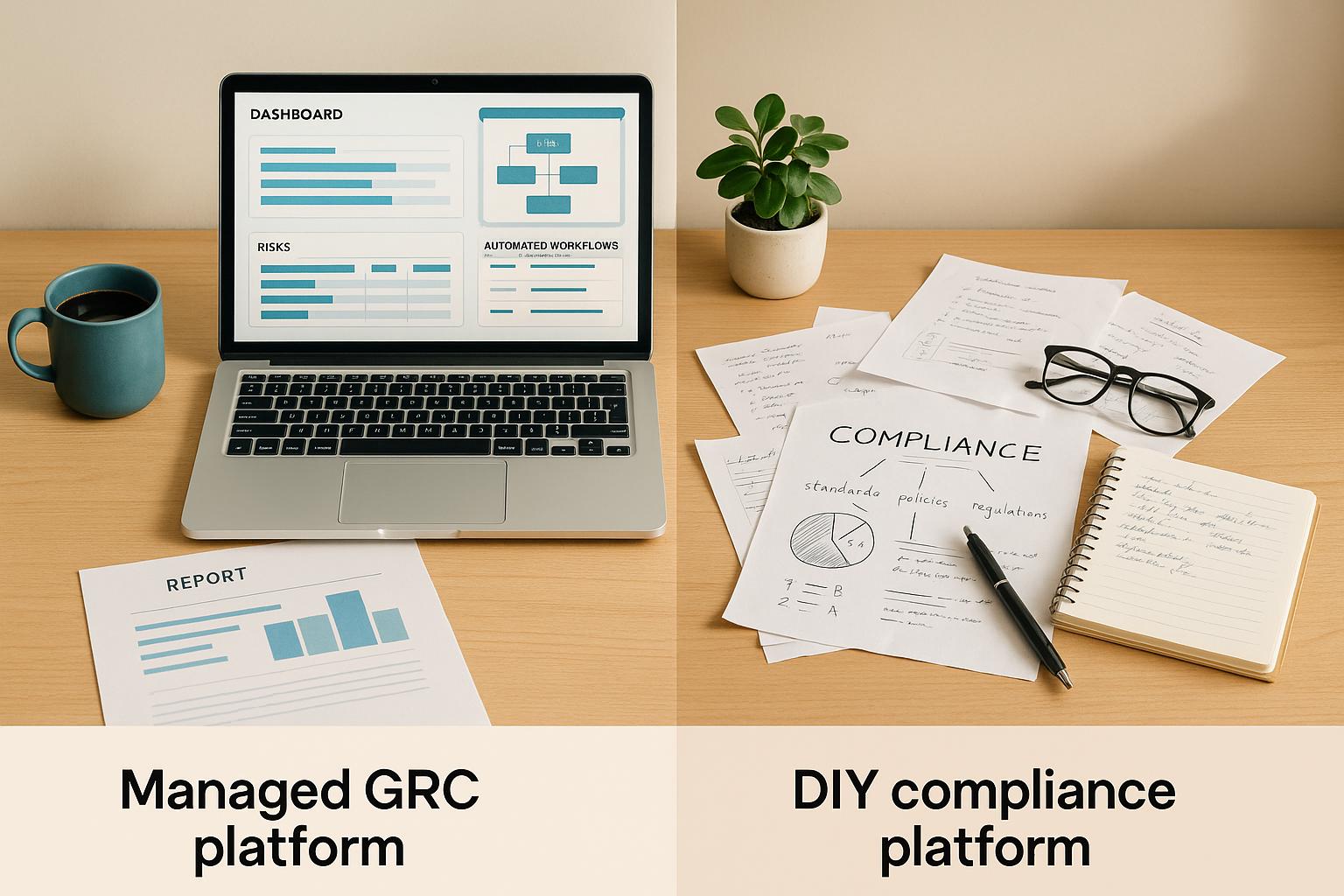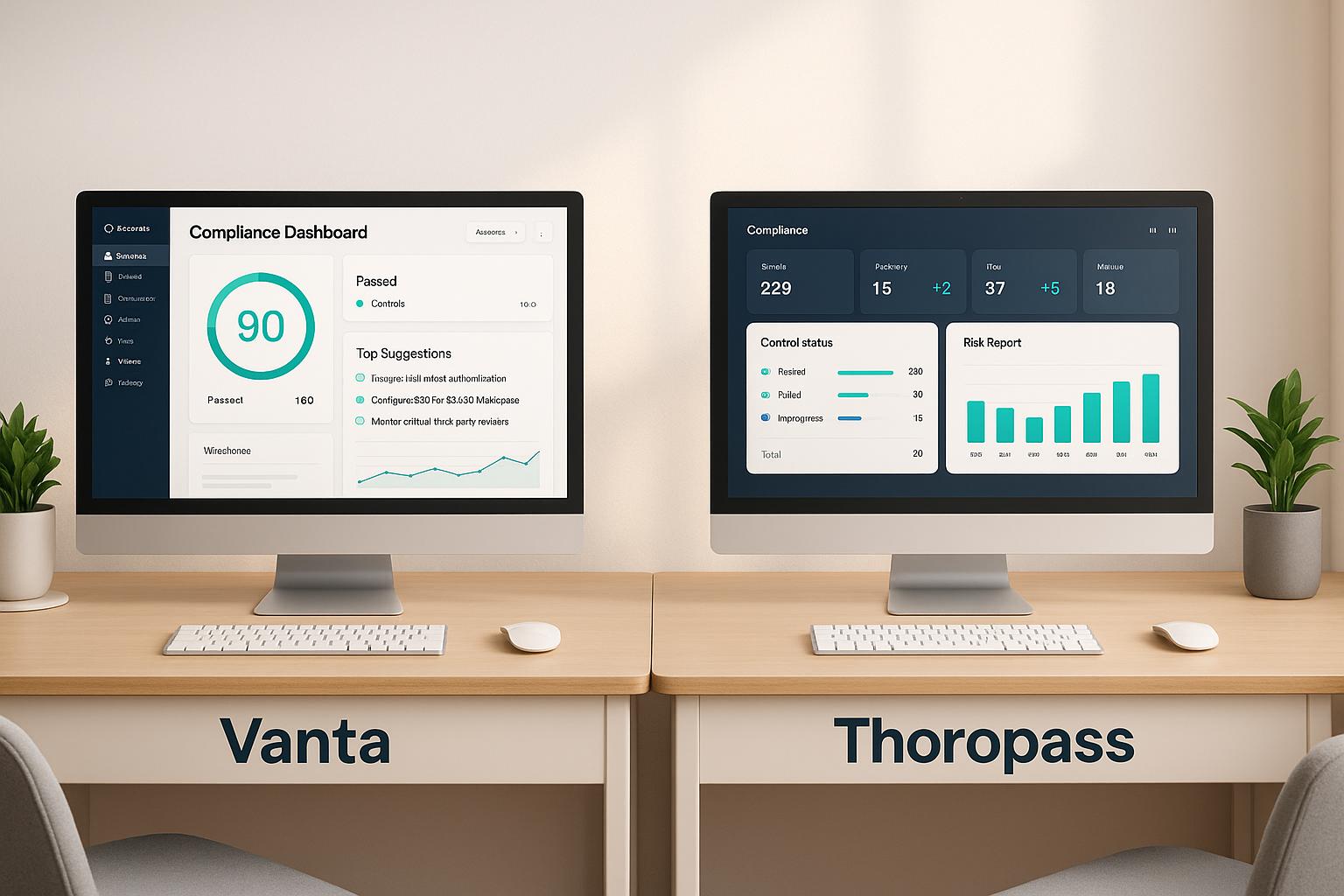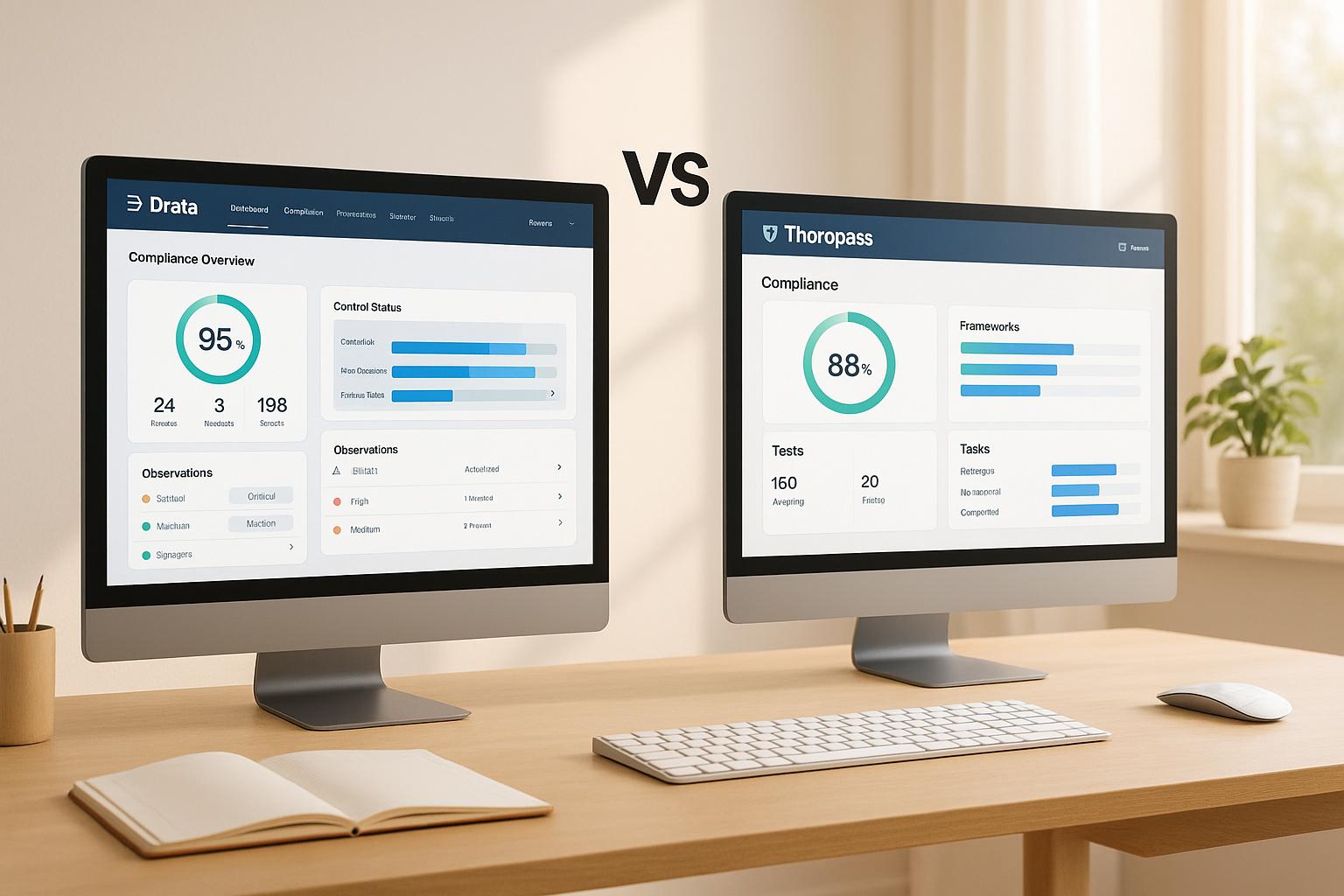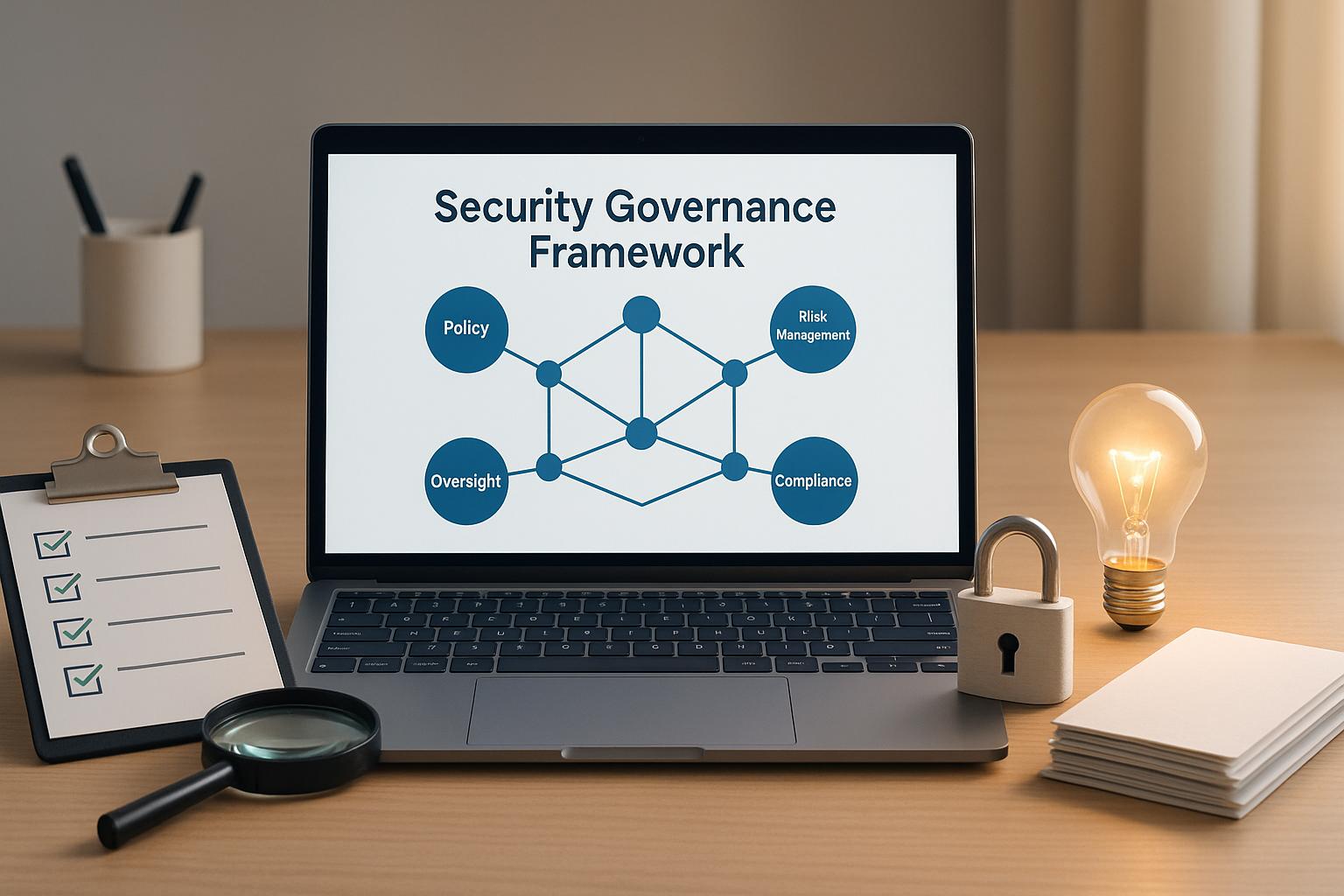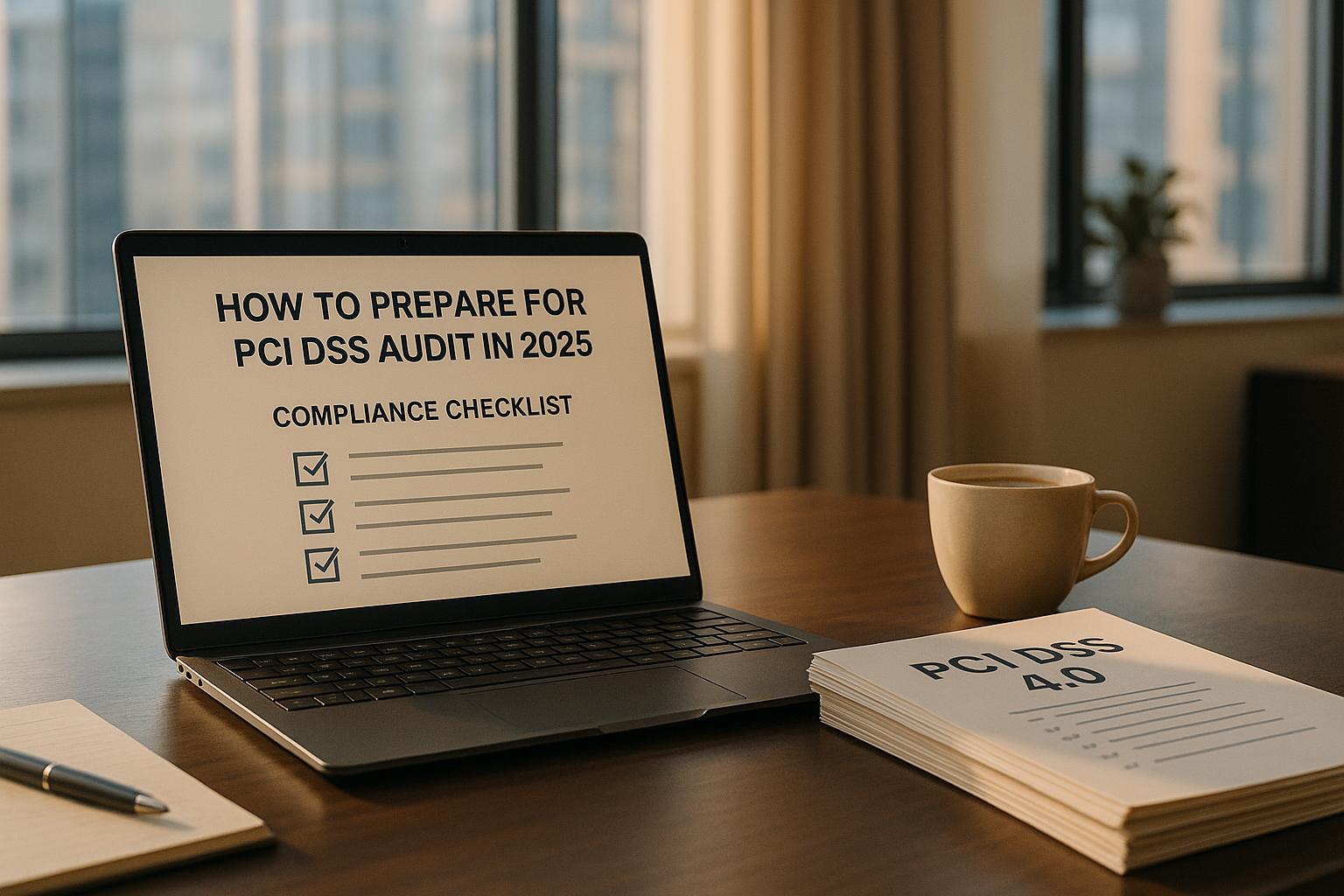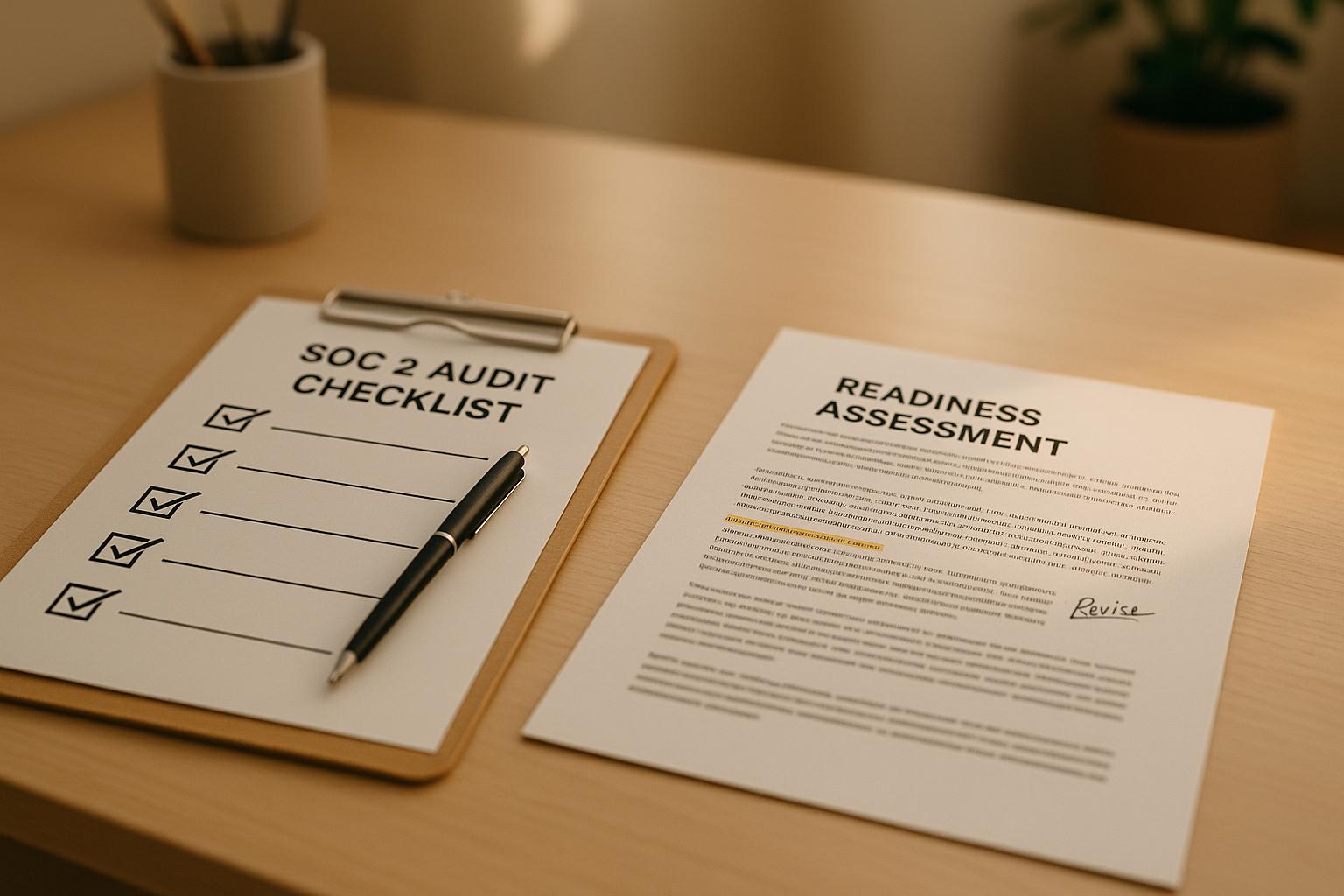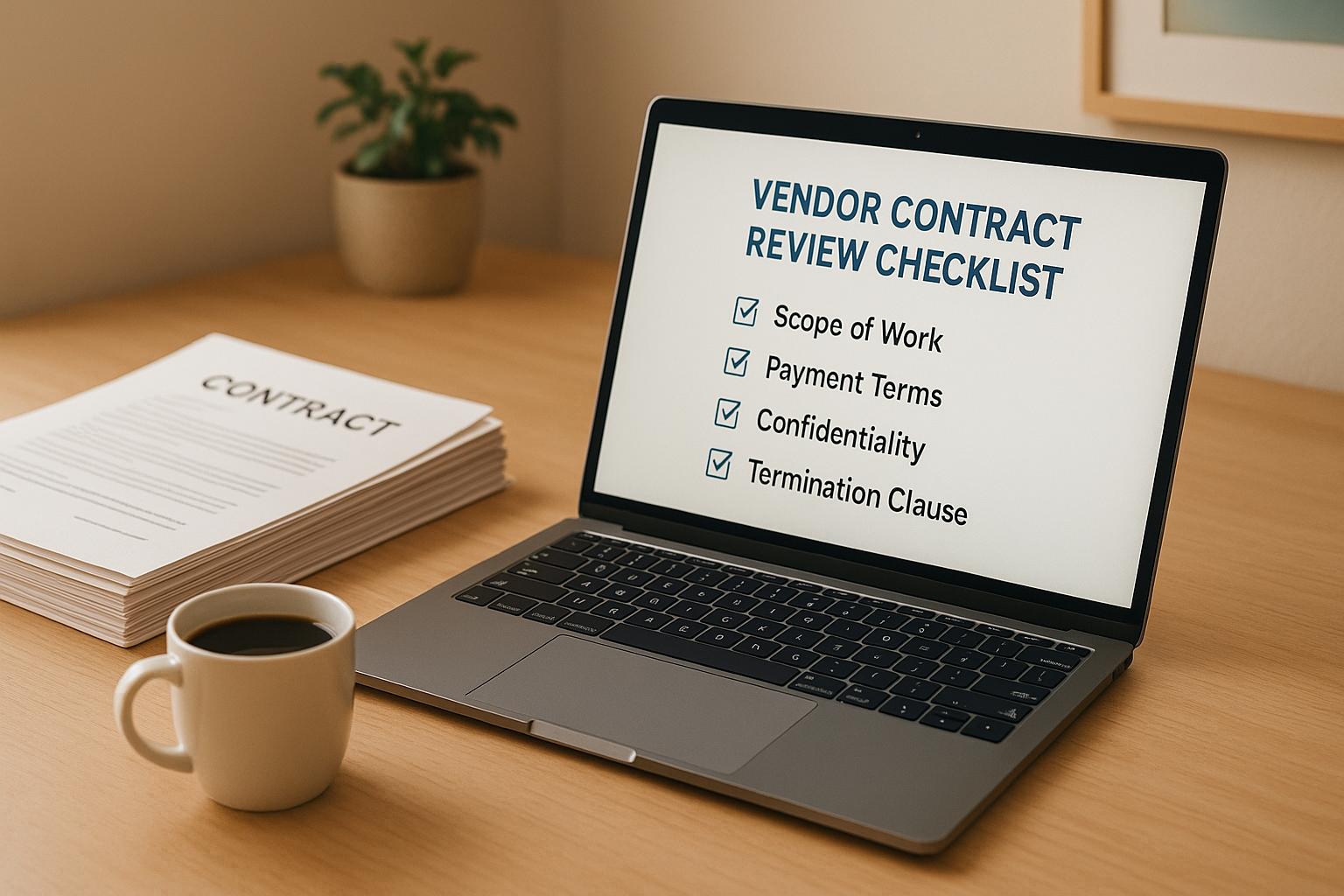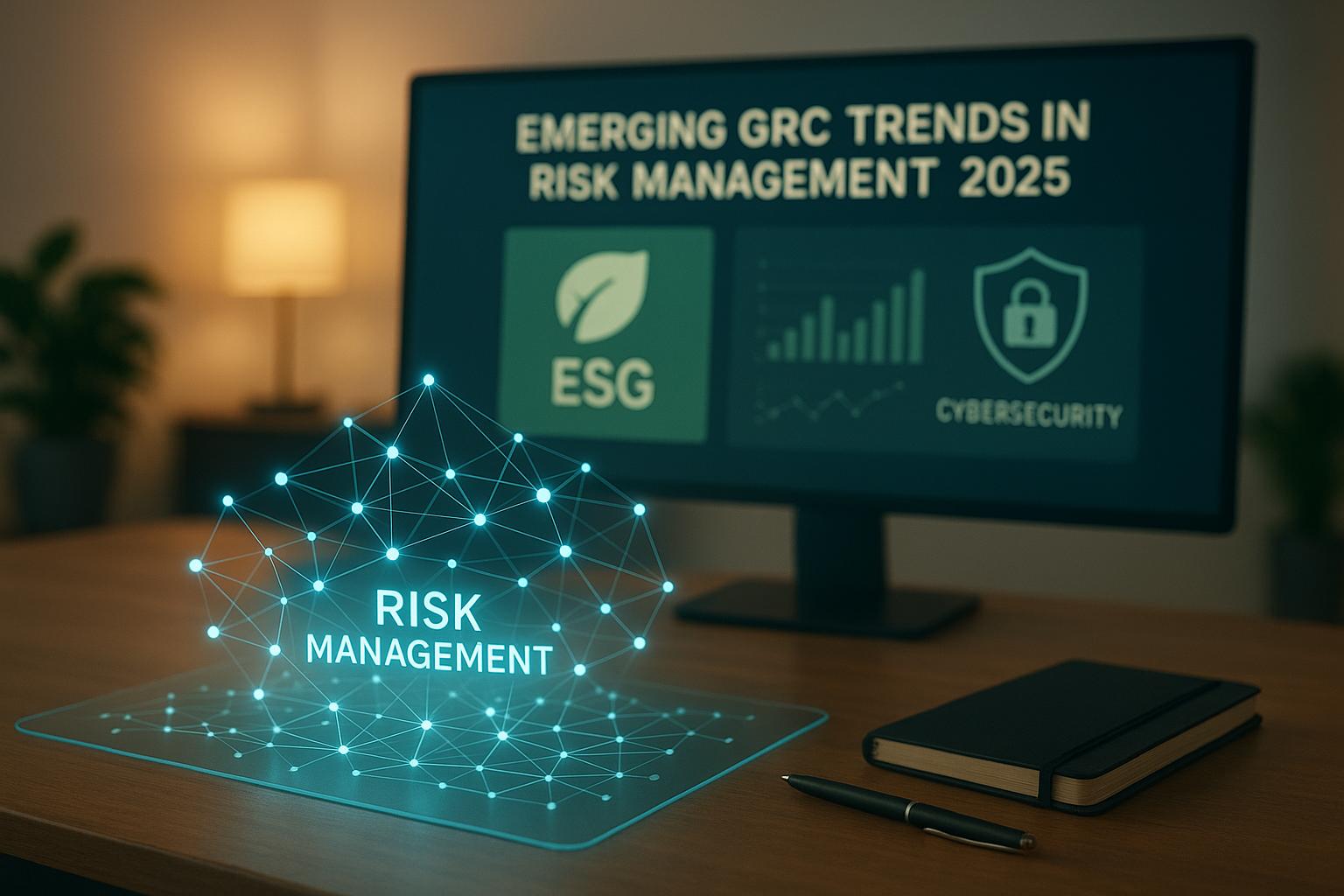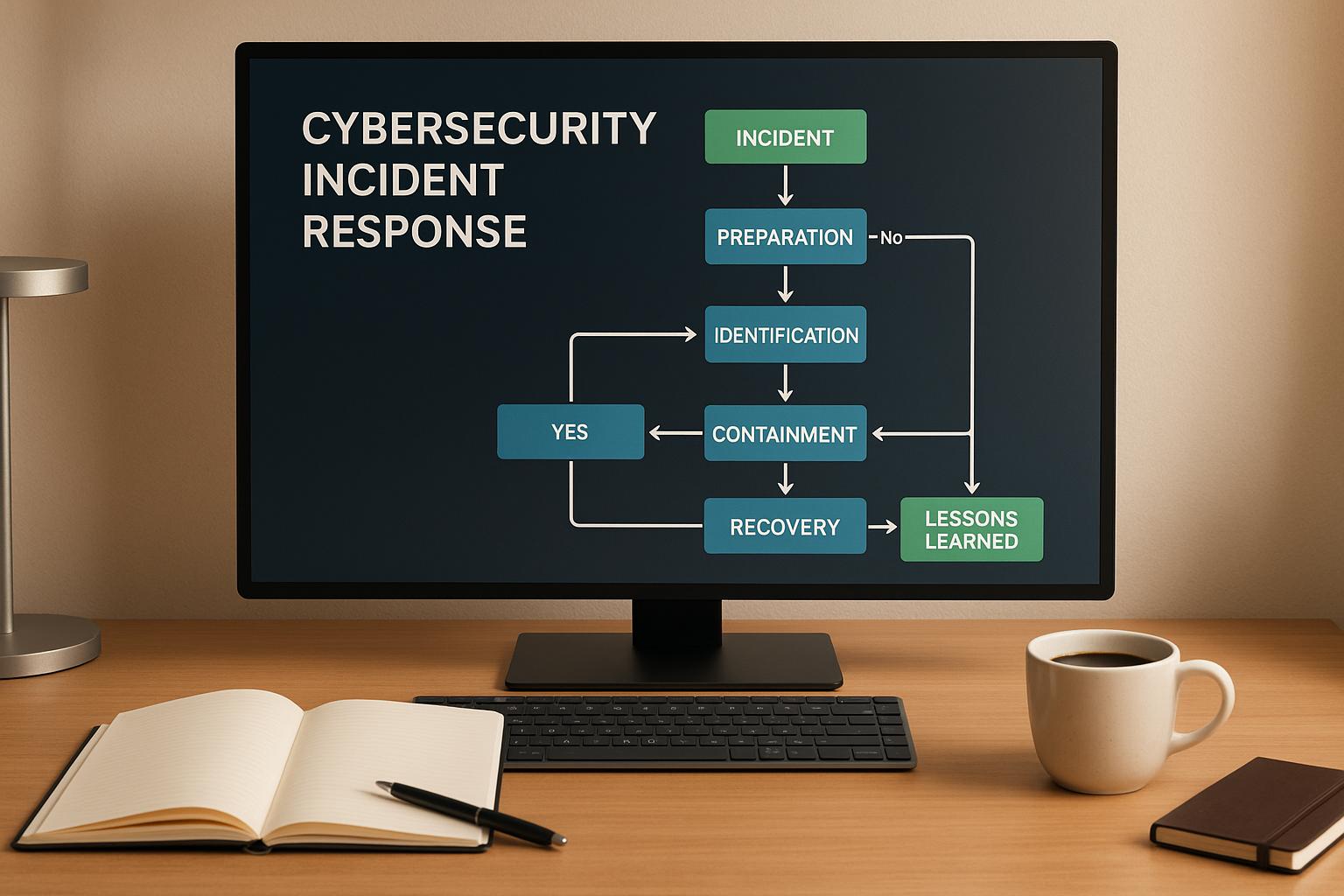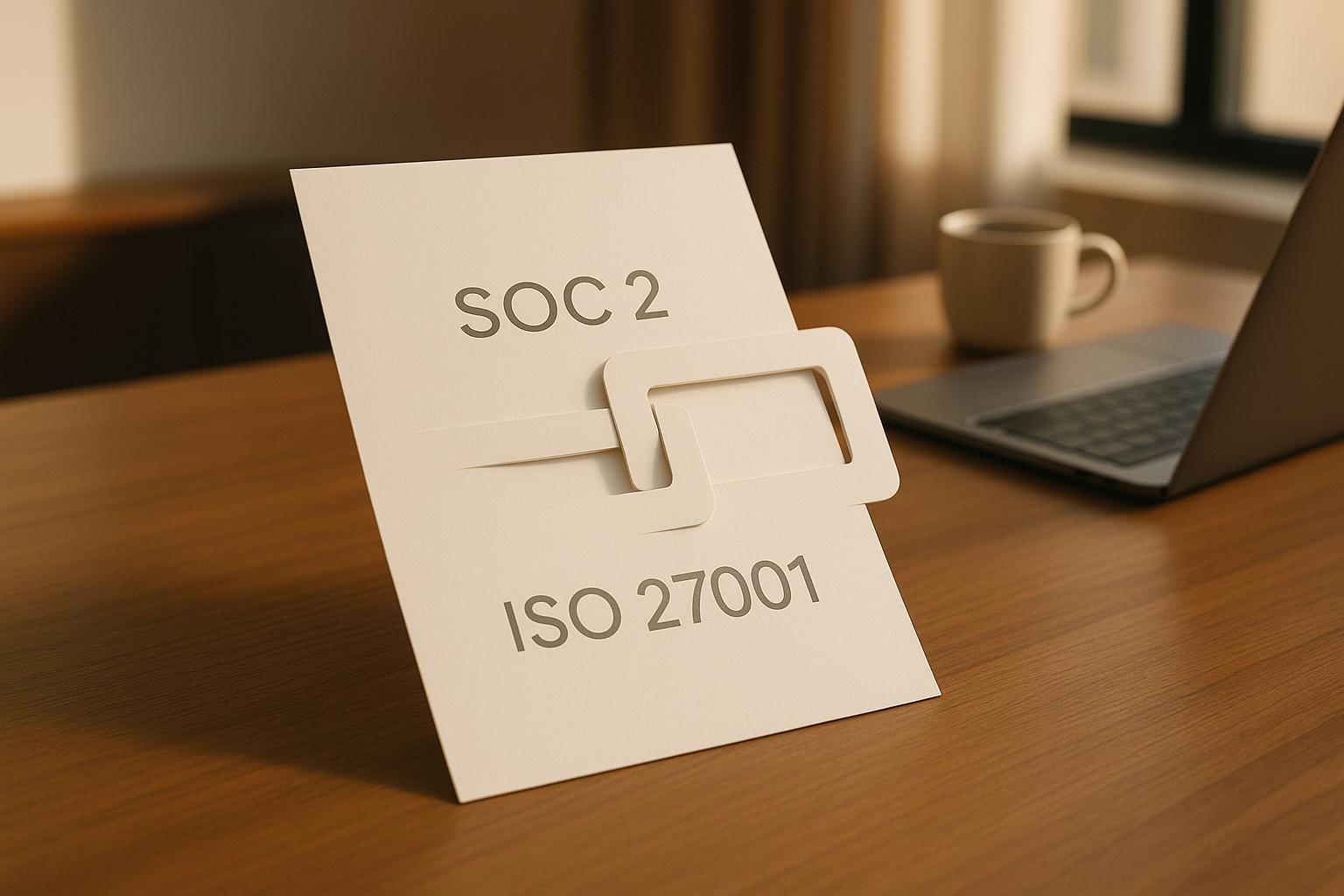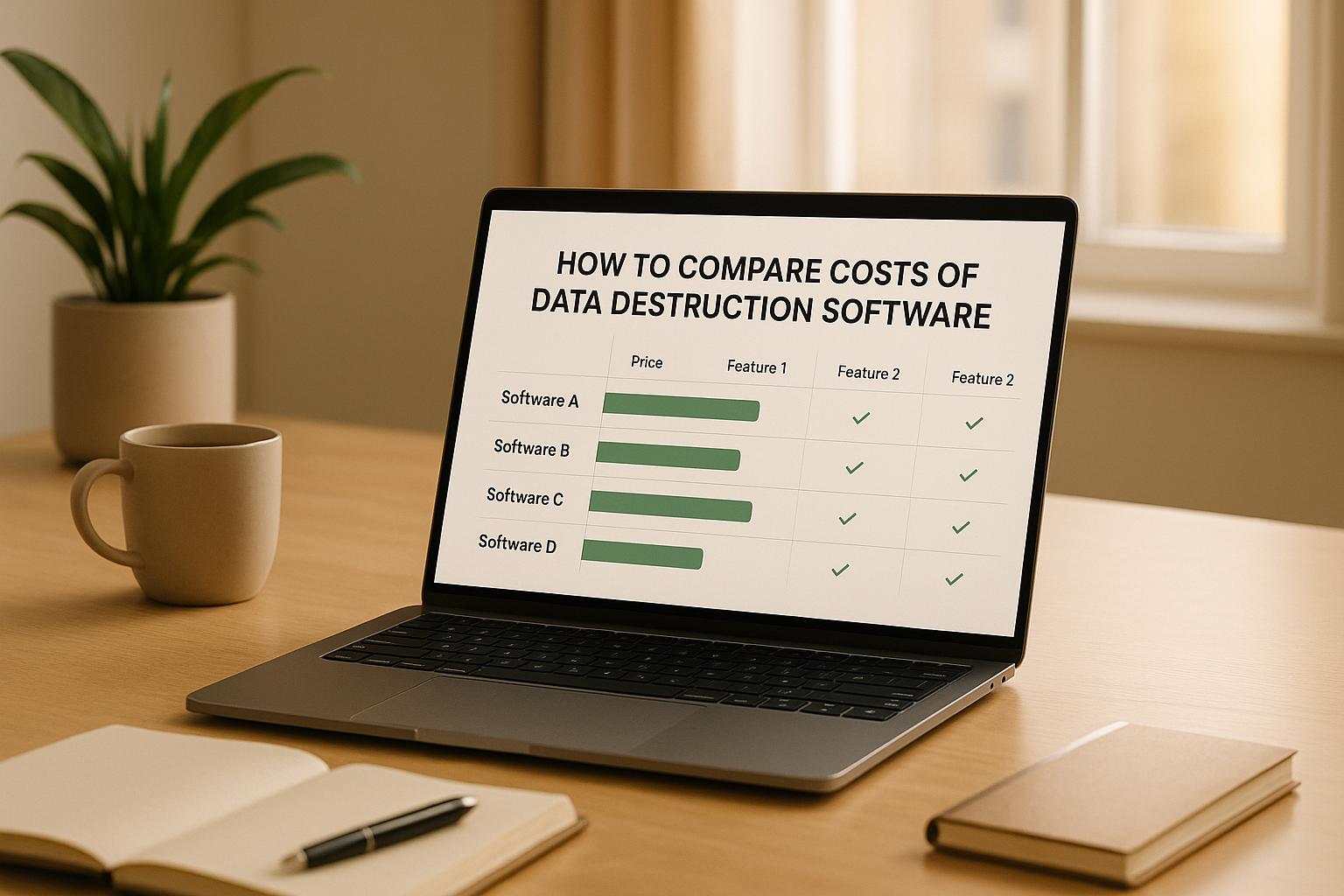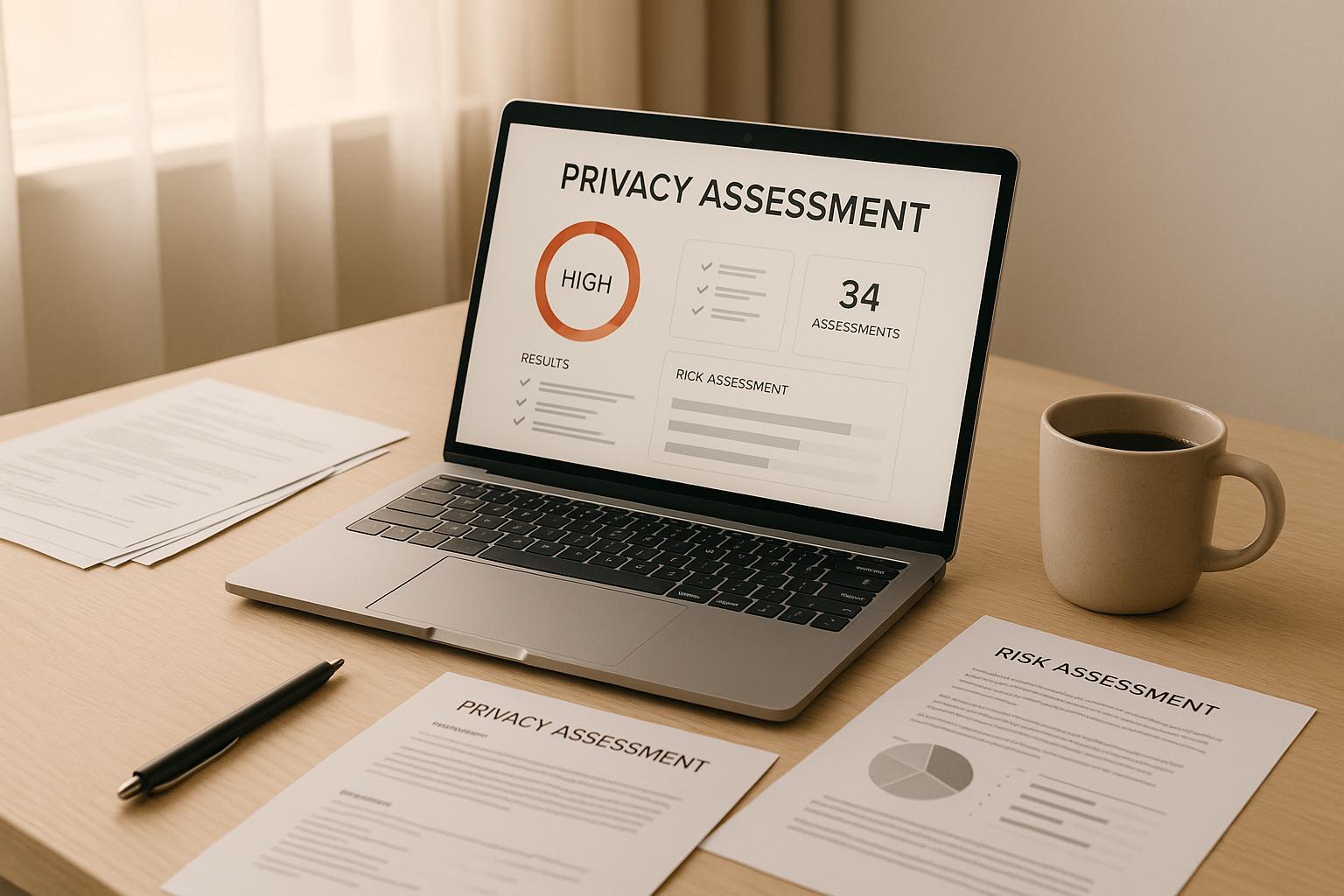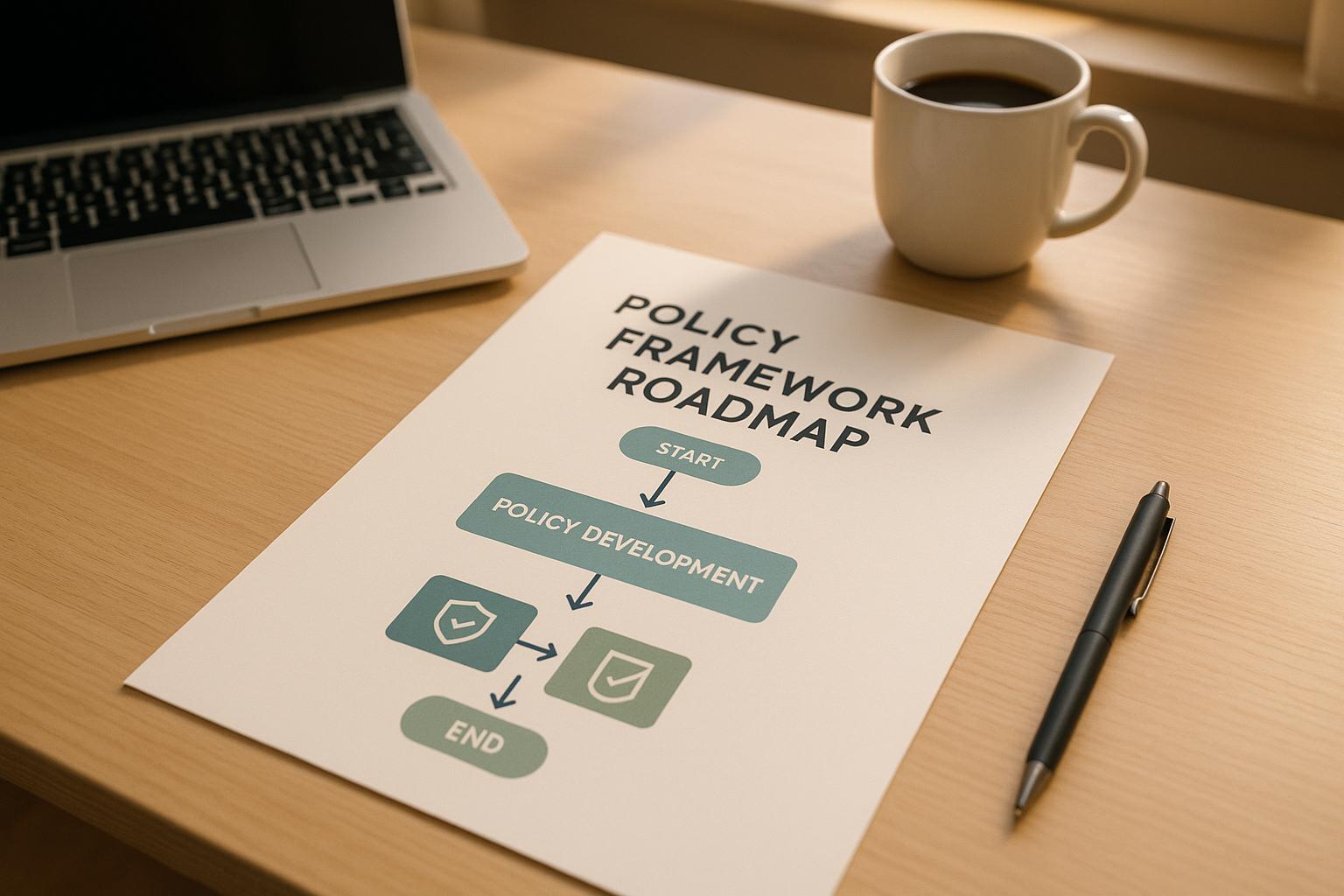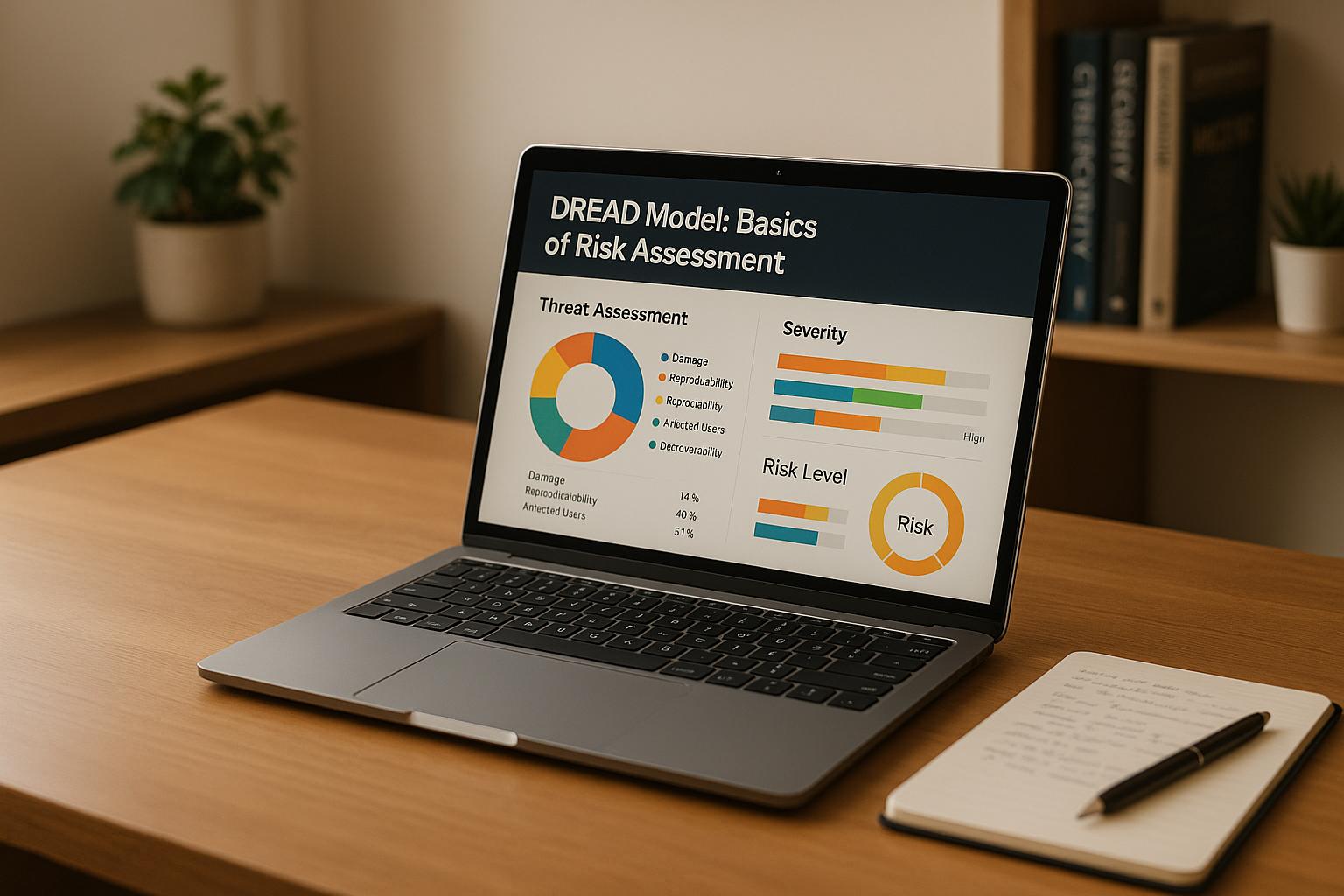
Vanta and Delve are compliance management platforms designed to help businesses meet regulations like SOC 2, ISO 27001, GDPR, and HIPAA. While both automate compliance processes, they differ in approach and target audiences:
- Vanta: Best for larger, established companies handling multiple frameworks. It offers extensive integrations (300+ tools), cross-mapping evidence, and advanced features like Vanta AI for compliance issue detection. Pricing starts at $7,500/year, with higher-tier plans offering more features.
- Delve: Tailored for smaller teams or startups needing fast compliance. It provides AI-driven automation, 24/7 expert support, and a simplified setup process. Pricing scales based on company size and needs, with all features bundled to avoid hidden costs.
Quick Comparison
| Criteria | Vanta | Delve |
|---|---|---|
| Supported Frameworks | 35+ frameworks, including SOC 2, GDPR, HIPAA | 7 key frameworks, including SOC 2, GDPR |
| Onboarding Time | ~40+ hours | ~10–15 hours |
| Integrations | 300+ tools | Major cloud platforms and business apps |
| Pricing | Starts at $7,500/year, add-ons extra | All-inclusive, scaled by company size |
| Best For | Large teams, multiple frameworks | Startups, lean teams, fast compliance setup |
Choose Vanta for complex, multi-framework needs and Delve for speed and simplicity.
Vanta Platform Details
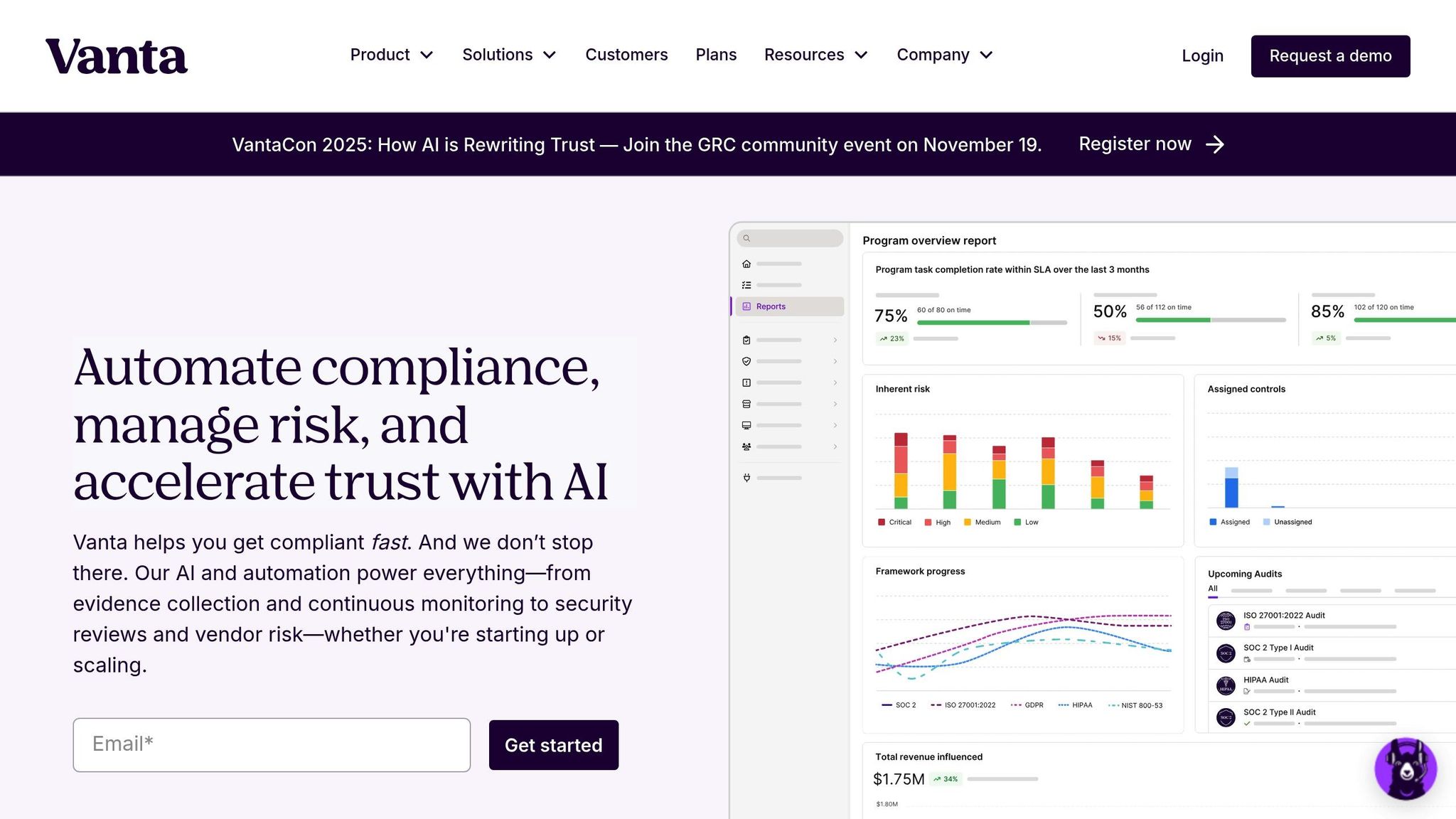
Vanta offers a compliance automation platform designed to help businesses maintain ongoing compliance. Its key focus is on continuous monitoring and automated evidence collection, making it especially appealing to organizations that need to demonstrate compliance on an ongoing basis rather than through one-off assessments.
Main Features and Functions
Vanta stands out for its broad framework coverage and extensive integrations. It supports major compliance standards like SOC 2, ISO 27001, GDPR, HIPAA, and PCI DSS, making it a practical choice for companies managing multiple frameworks at once.
The platform simplifies audit preparation, reducing the time required by 82% per framework. By continuously monitoring connected systems, it automatically collects the necessary documentation for audits.
Vanta integrates with over 300 tools - including AWS, Azure, identity systems, HR platforms, and development tools - allowing real-time monitoring of controls and quick identification of compliance gaps.
One of its standout features is Vanta AI, which offers intelligent test remediation to detect and address compliance issues early. Higher-tier plans also include advanced access management tools, such as automated access reviews and streamlined workflows for access requests.
The platform also features a Trust Center for sharing public compliance statuses and automates security questionnaires to simplify vendor assessments and customer reviews, though the capabilities vary by plan.
These functionalities provide a glimpse of Vanta’s capabilities, which will be further compared with Delve in upcoming sections. Pricing tiers help illustrate how these features scale to meet different organizational needs.
Pricing Structure
Vanta’s pricing details are available through its sales team. The platform is divided into five pricing tiers - Core, Plus, Growth, Scale, and Enterprise - each catering to different organizational sizes and compliance needs.
- Core Plan: Ranges from $7,500 to $11,500 annually. Covers one framework and includes features like a policy builder, Vanta AI, and either a penetration test (for SOC 2) or internal audit support (for ISO 27001).
- Plus Plan: Costs between $15,000 and $30,000 per year, adding 25 automated security questionnaires annually and enhanced access review and request capabilities.
- Growth Plan: Priced at $15,000–$25,000/year, with additional frameworks costing around $5,000 each. This plan offers continuous compliance monitoring, 144 questionnaires annually, and role-based access controls with single sign-on. Some sources suggest Growth pricing may start at $30,000.
- Scale Plan: Costs $30,000–$80,000/year, offering 288 questionnaires annually, customizable reporting, multiple workspaces, SCIM provisioning, and advanced role-based access controls.
- Enterprise Plan: Fully customizable, with pricing starting above $80,000/year. This plan includes dedicated support tailored to organizational needs.
Data from 315 purchases indicates that the median Vanta subscriber spends approximately $19,800 annually, with buyers saving an average of 30% through negotiation. However, some users have reported unexpected charges related to questionnaire limits, vendor management features, and API-based monitoring caps, which were not always clearly disclosed.
Add-ons can significantly impact total costs. For example, the Trust Center feature starts at $6,000/year, Vendor Risk Management costs around $11,200 annually, and Advanced Questionnaire Automation can add $10,000 to $25,000/year.
It’s also important to budget separately for audit costs, as these are not included in Vanta’s subscription. SOC 2 Type II audits typically range from $10,000 to $50,000, while ISO 27001 certification costs fall between $15,000 and $40,000. Smaller companies (1–20 employees) generally spend $7,500–$11,500 annually, mid-sized businesses allocate $15,000–$25,000/year, and larger organizations invest $30,000–$80,000/year, depending on their compliance needs.
Delve Platform Details
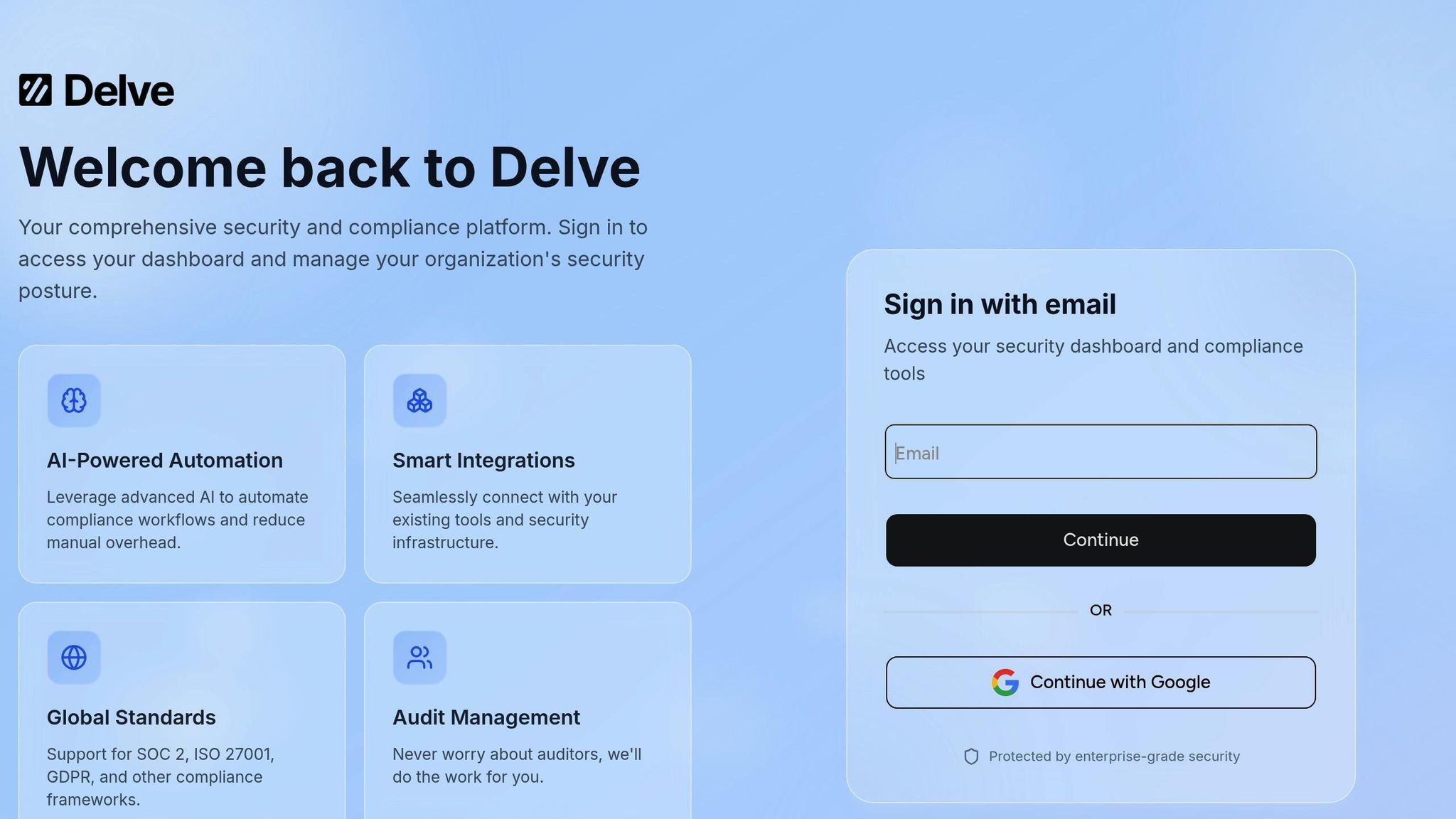
Delve is a compliance automation platform designed to simplify setup and provide ongoing oversight. It’s tailored for organizations seeking a blend of automation and expert guidance, bringing together powerful tools and professional support.
Main Features and Functions
Delve is built to support key compliance frameworks like SOC 2, ISO 27001, GDPR, and HIPAA, focusing on providing the tools needed to meet these important standards.
The platform features an automated setup process, helping organizations move quickly from deployment to active monitoring. Once connected, Delve continuously scans systems for compliance gaps and offers clear, actionable guidance to address any issues.
Seamless integration with major cloud platforms and commonly used business applications ensures that the platform delivers meaningful insights across connected systems. Delve also simplifies audit preparation by collecting and organizing evidence into a clear audit trail, making documentation easy to access during reviews. The customizable dashboards provide a snapshot of key metrics and risk assessments, keeping teams informed at a glance.
These features are complemented by straightforward pricing and strong support options.
Pricing and Support Structure
Delve offers a clear, all-in-one pricing model based on an organization’s size and compliance needs. The pricing scales to accommodate smaller businesses with essential features, while larger enterprises benefit from multi-framework solutions.
The platform’s pricing structure eliminates surprises by bundling critical features - like audit support and technical assistance - into a single cost. Every plan includes 24/7 technical support, giving users access to experts who can provide guidance and help resolve issues. For organizations on higher-tier plans, bundled audit services are also available to simplify the compliance process further.
Flexible payment options are available, including monthly billing, with discounts for annual subscriptions to help businesses manage their budgets effectively.
Side-by-Side Feature Comparison
This section provides a detailed comparison of Vanta and Delve, giving you a clear view of how each compliance tool stacks up. By breaking down their key features, we aim to highlight how these platforms handle efficient and continuous compliance management.
Supported Frameworks and Integrations
When it comes to frameworks and integrations, Vanta offers extensive coverage, supporting over 35 frameworks. These include major standards like SOC 2, ISO 27001, HIPAA, GDPR, FedRAMP, TISAX, CMMC, PCI DSS, the AI Act, and ISO 42001 AI Management System. It also covers regional standards such as UK Cyber Essentials and Australian Essential 8, along with industry-specific frameworks like HITRUST CSF and CJIS. A standout feature of Vanta is its cross-mapping capability, allowing organizations to reuse evidence across multiple frameworks.
On the other hand, Delve supports a more focused selection of 7 core frameworks: SOC 2, ISO 27001, HIPAA, PCI DSS, GDPR, HITRUST, ISO 42001, EU AI Act, and NIST AI RMF. While Delve’s offering is narrower, it still covers essential compliance needs for many organizations.
Setup Process and User Interface
The onboarding process is where these platforms diverge significantly. Delve prioritizes speed and simplicity. Initial setup can be completed in minutes, and full onboarding typically requires 10–15 hours of effort. This streamlined approach makes Delve a strong choice for teams looking to get up and running quickly.
Vanta, by contrast, employs a more detailed, checklist-driven onboarding process. While thorough, it can take several weeks to complete and demands over 40 hours of internal effort. However, Vanta has made strides to improve its user experience. On July 1, 2024, it rolled out a redesigned user interface with better navigation, intuitive item grouping, and quicker access to help and account information. These updates aim to make the platform more user-friendly despite the longer onboarding timeline.
sbb-itb-ec1727d
Which Platform to Choose When
Deciding between Vanta and Delve depends on your organization's compliance needs, team resources, and operational priorities. Rather than trying to crown a "winner", it's about identifying the platform that aligns best with your specific situation. Based on the features and onboarding distinctions discussed earlier, here’s when each platform shines.
Best Cases for Vanta
Vanta is a strong fit for organizations managing complex compliance requirements across multiple frameworks. If your company needs to uphold standards like SOC 2, ISO 27001, or HIPAA, Vanta simplifies the process by consolidating evidence across frameworks.
Established companies with dedicated compliance teams will appreciate Vanta’s thorough and structured approach. Its detailed onboarding process, driven by checklists, is especially useful for businesses with robust internal governance, risk, and compliance (GRC) processes.
Tech companies operating in diverse IT environments can take advantage of Vanta’s extensive integration capabilities. If your organization uses a mix of cloud services, security tools, and business applications, Vanta’s automation features and granular compliance controls can save time and effort.
For businesses where compliance certifications are critical to enterprise sales or revenue growth, Vanta’s ability to support multiple certifications offers a strategic edge.
Best Cases for Delve
Delve is ideal for organizations that need to move quickly. Startups and scale-ups aiming for rapid compliance deployment will benefit from Delve’s streamlined onboarding process, which helps you achieve certifications faster - whether to satisfy clients or investors.
If your team is small or lacks dedicated compliance personnel, Delve’s minimal-disruption approach makes it easier to integrate compliance tasks into daily operations without overwhelming your team.
For companies focused on core compliance frameworks like SOC 2, ISO 27001, or HIPAA, Delve provides targeted support to meet essential requirements without unnecessary complexity.
Organizations that value real-time monitoring will find Delve’s continuous compliance updates particularly useful. These updates provide instant visibility into your security posture and compliance progress.
When internal expertise is limited, Delve’s hands-on support model is a game-changer. Their guided, expert-driven approach ensures you have professional advice on strategy and implementation every step of the way.
Using Compliance Tools with Outsourced GRC Services
Vanta and Delve are both excellent tools for automating compliance, but many organizations find that pairing these platforms with outsourced GRC services creates a stronger compliance strategy. Instead of choosing between managing compliance internally or relying entirely on external help, this hybrid approach combines the best of both worlds. It fills operational gaps and ensures compliance efforts are reinforced at every stage.
Managing Vanta or Delve effectively at scale requires specialized expertise. Outsourced GRC providers bring deep knowledge of configuring these tools, managing integrations, and resolving technical issues. This ensures the platforms perform at their best without requiring in-house teams to become experts in platform management.
When it comes to audit preparation, external support can be a game-changer. While Vanta and Delve automate evidence collection, preparing for an audit involves more than just gathering data. It requires careful planning, identifying gaps, and addressing them proactively. GRC service providers can assist with pre-audit assessments and bring experienced professionals who understand exactly what auditors are looking for.
Ongoing compliance monitoring also benefits from external oversight. GRC providers can analyze the data generated by these platforms, spot trends that might signal emerging risks, and recommend proactive steps to address them. This level of analysis often goes beyond what internal teams can manage while juggling their primary responsibilities.
Organizations that adopt this combined approach often find it easier to scale their compliance programs efficiently. The tools handle routine tasks like evidence collection and monitoring, while external experts focus on strategic guidance, remediation, and audit preparation. This division of responsibilities allows internal teams to stay focused on their core business activities without compromising on compliance.
The hybrid model can also be more cost-effective. Instead of hiring full-time compliance specialists or relying on undertrained staff, organizations gain access to expert-level support through outsourced services. For example, Cycore's GRC Tool Administration offers professional management of platforms like Vanta and Delve as part of broader compliance programs, addressing the need for specialized support.
Another advantage of this approach is managing complex multi-framework requirements. Vanta and Delve can automate evidence collection for frameworks like SOC 2, ISO 27001, HIPAA, and GDPR. However, interpreting the results and planning strategic improvements requires a level of compliance expertise that external providers are well-equipped to deliver.
For organizations considering this strategy, the most important step is selecting GRC service providers with direct experience in your chosen compliance platform. Whether you're using Vanta or Delve, ensure your external partner understands the platform's features, limitations, and best practices for your industry and compliance needs.
Final Comparison Summary
Vanta vs. Delve: Key Differences
Vanta and Delve both aim to simplify compliance management, but they take distinct approaches that cater to different organizational needs. These differences can significantly influence how you shape your compliance strategy.
Vanta stands out for its focus on ease of use and automation. Users frequently highlight its intuitive interface, which makes it easier to adopt. Key features include automated evidence collection, monitoring, and reporting. Plus, Vanta integrates seamlessly with popular business tools, embedding compliance tasks directly into existing workflows.
Delve, by contrast, shines in its ability to adapt to specific needs. Its customizable workflows and reporting options make it a strong choice for organizations with unique compliance challenges or those operating in highly regulated sectors. This flexibility is particularly helpful for managing multiple compliance frameworks or navigating intricate regulatory landscapes.
When it comes to pricing, Vanta uses a transparent and scalable model, while Delve opts for a tailored pricing structure based on an organization’s specific requirements. Evaluating these pricing models alongside your budget and long-term goals is essential.
Adoption and setup also differ. Vanta offers standardized self-service resources that speed up onboarding, while Delve’s custom configurations may demand more time for setup and additional training.
Understanding these distinctions can help you identify which platform aligns better with your organization’s goals.
What to Do Next
With these differences in mind, take a closer look at your compliance needs and internal capabilities. Dive into each platform’s features and pricing to determine which approach fits your organization best. Consider factors like your regulatory complexity, compliance maturity, and the technical expertise of your team.
It’s worth conducting a pilot test for both platforms. This hands-on approach will help you uncover any integration challenges, assess how well the platform fits into your workflows, and gauge how easily your team can adopt it. Don’t forget to calculate the total cost of ownership by factoring in implementation, training, ongoing support, and any customization expenses.
Lastly, remember that no compliance tool works in isolation. Partnering with governance, risk, and compliance (GRC) experts can help you get the most out of your chosen platform. For example, services like Cycore’s GRC Tool Administration can bridge the gap between the platform’s capabilities and your organization’s specific needs, ensuring your compliance program achieves its objectives.
FAQs
What are the differences in onboarding time and process between Vanta and Delve for new users?
Delve streamlines the onboarding process with its AI-native interface, enabling setup in just a few minutes and full onboarding in around 10–15 hours. Plus, they provide round-the-clock access to compliance experts via Slack and Zoom, ensuring support is always available during the process.
On the other hand, Vanta takes a more checklist-driven approach to onboarding, designed with scalability in mind. This method, however, often stretches over several weeks and demands more than 40 hours of internal effort. Support is typically limited to standard business hours, which might pose challenges for teams needing greater flexibility.
What should companies evaluate when choosing between Vanta and Delve for compliance management?
When deciding between Vanta and Delve for compliance management, it's essential to weigh factors like the onboarding process, automation features, and integration flexibility. Delve stands out with its faster, AI-powered onboarding and real-time risk analysis, making it a great fit for smaller, agile teams. Vanta, in contrast, offers a more methodical onboarding approach with wider integration options, though it might require some manual tweaks for custom workflows.
Another key consideration is how each platform manages evidence collection. Delve employs AI agents to simplify evidence gathering for unique setups, while Vanta automates the process through integrations. However, for custom configurations, Vanta might still need manual uploads. Your decision should align with your organization's compliance priorities, operational strategies, and team size.
How do Vanta and Delve's pricing models affect their cost-effectiveness for businesses of different sizes?
Vanta and Delve approach pricing in ways that suit different business sizes and needs. Vanta's pricing typically falls between $10,000 and $30,000 annually for startups but can climb to $80,000 or more for larger enterprises, especially if you need extras like audit support or additional frameworks. Delve, on the other hand, keeps things simpler, with costs generally ranging from $10,000 to $20,000 per year, and most features are included in that price.
Vanta tends to be a better fit for businesses juggling multiple compliance frameworks, as its automation tools help cut down on manual work. Meanwhile, Delve's straightforward pricing structure might appeal more to smaller companies or those with less intricate compliance needs. The right choice really depends on your compliance goals and how much you're looking to invest.






